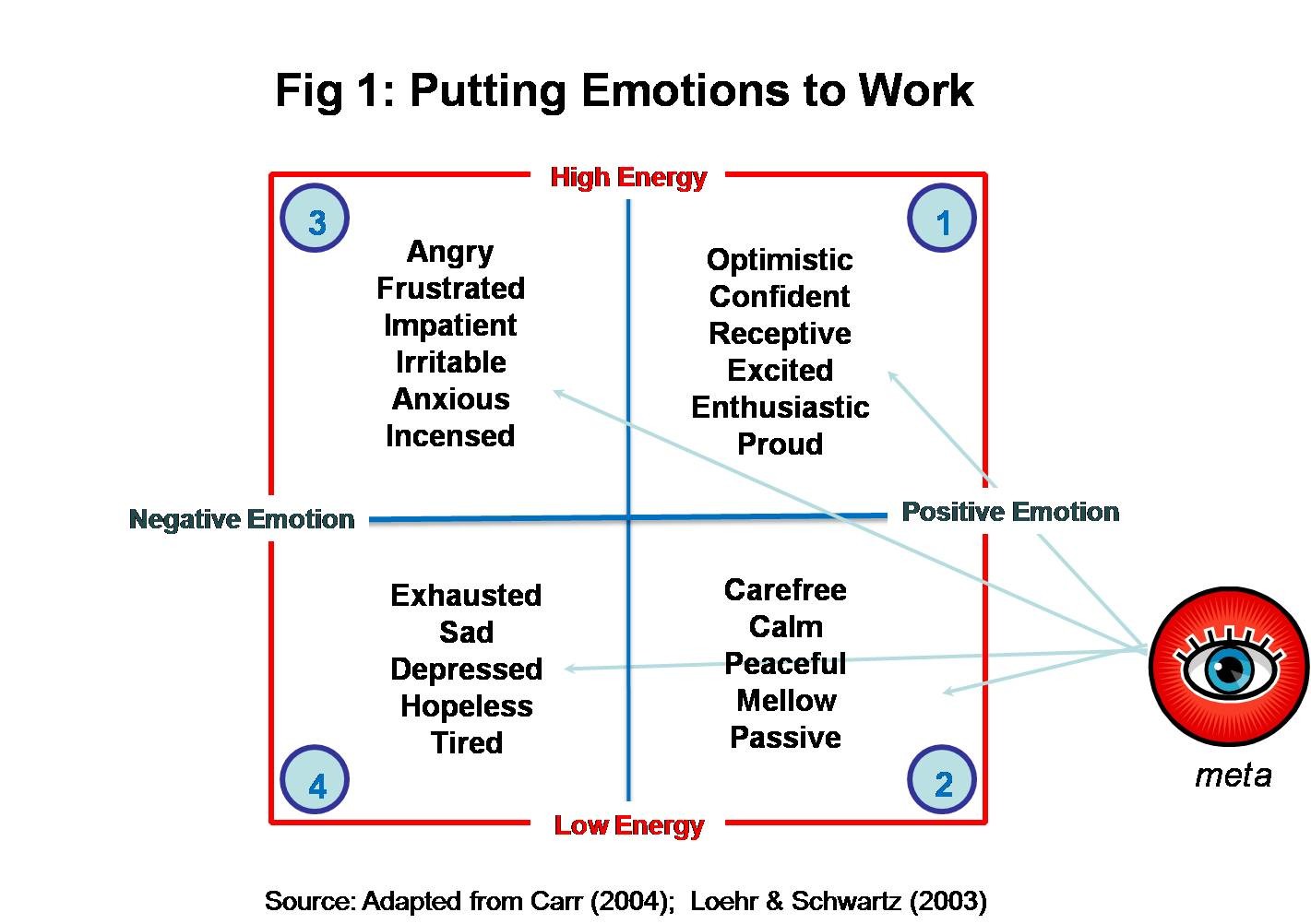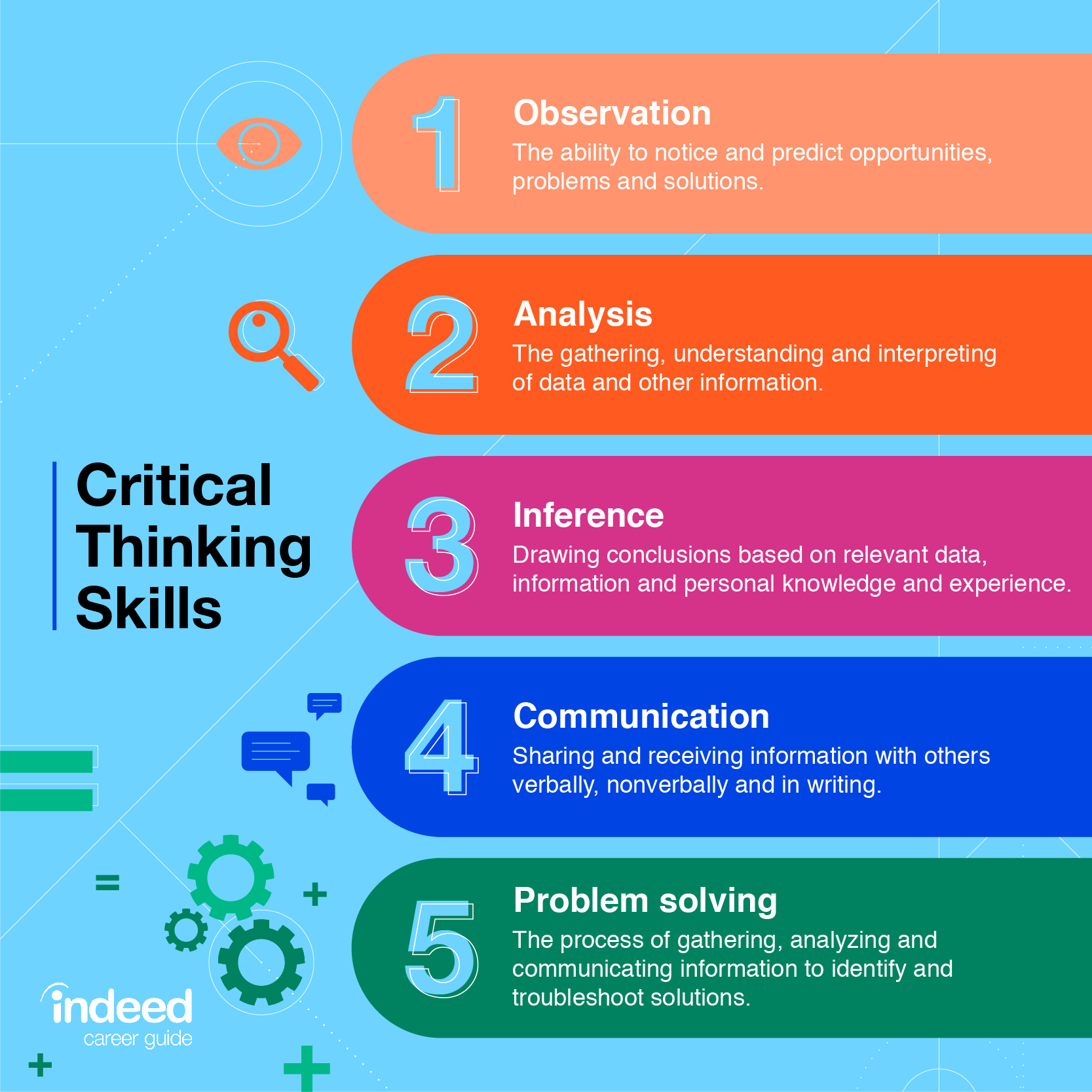Project Success- Workshop 1 (Key Principles)
Insert Learning Provider Image Headshot Image Here (Align-Right)
The Appleton Greene Corporate Training Program (CTP) for Project Success is provided by Dr Baumgartner, EMBS Certified Learning Provider (CLP). Program Specifications: Monthly cost USD$2,500.00; Monthly Workshops 6 hours; Monthly Support 4 hours; Program Duration 12 months; Program orders subject to ongoing availability.
If you would like to view the Client Information Hub (CIH) for this program, please Click Here
Learning Provider Profile
Insert Learning Provider Image Headshot Image Here (Align-Right)
Dr Baumgartner, EMBS has worked with senior private and public sectors clients around the world on highly sensitive and critical programs for more than 25 years. He has been successfully involved in major economic development projects. He has worked with presidents, prime ministers and their cabinets on country strategies as well as their successful delivery. He has set up special economic zones and started new cities. He has also partnered with corporates and their key executives around the world, and made major initiatives happen. And he has worked with individual entrepreneurs, enabling them to realize their passion. Last but not least, he has got executive experience himself – he knows exactly what it feels like to be in the hot seat.
This training program builds on the wealth of Dr Baumgartner’s experience. It is targeted at those with the ambition of following their passion and making a true difference, whether in a private sector or public sector setting – or individually. Whether for profit or not.
Dr Baumgartner is a Certified Instructor of the Napoleon Hill Foundation. Yet, the program doesn’t stop at Napoleon Hill’s Success Principles. It moves them into the 21st Century, explores modern project management and delivery tools, emphasizes the success critical role of positioning and communications, and looks into work-lifestyle components that are critical for long-term sustainability and success. Success requires passion and skills!
MOST Analysis
Mission Statement
The first module will introduce the participants to the structure of the full program as well as familiarize them with Napoleon Hill as well as other thinkers that have influenced the program. It will also lay out to them how the program will work, and what will be needed from them, so that they achieve maximum benefit out of participating in the program.It will then move to the first half of providing an overview of Key Principles of Success, at a relatively high level. The objective is to familiarize the participants with major thinking and key messages in an intense way, so that they can start benefitting from the program in their real professional environment from the outset. Also, this will give them the “big picture”, upon which subsequent modules will build.
Objectives
01. Definiteness of Purpose: departmental SWOT analysis; strategy research & development. Time Allocated: 1 Month
02. Mastermind Alliance: departmental SWOT analysis; strategy research & development. Time Allocated: 1 Month
03. Going The Extra Mile: departmental SWOT analysis; strategy research & development. Time Allocated: 1 Month
04. Applied Faith: departmental SWOT analysis; strategy research & development. Time Allocated: 1 Month
05. Learning from Adversity and Defeat: departmental SWOT analysis; strategy research & development. Time Allocated: 1 Month
06. Pleasing Personality: departmental SWOT analysis; strategy research & development. Time Allocated: 1 Month
07. Personal Initiative: departmental SWOT analysis; strategy research & development. 1 Month
08. Creative Vision: departmental SWOT analysis; strategy research & development. Time Allocated: 1 Month
09. Positive Mental Attitude: departmental SWOT analysis; strategy research & development. Time Allocated: 1 Month
10. Enthusiasm: departmental SWOT analysis; strategy research & development. Time Allocated: 1 Month
11. Self-Discipline: departmental SWOT analysis; strategy research & development. Time Allocated: 1 Month
12. Accurate Thinking: departmental SWOT analysis; strategy research & development. Time Allocated: 1 Month
13. Controlled Attention: departmental SWOT analysis; strategy research & development. Time Allocated: 1 Month
14. Teamwork: departmental SWOT analysis; strategy research & development. Time Allocated: 1 Month
15. Sound Health: departmental SWOT analysis; strategy research & development. Time Allocated: 1 Month
16. Budgeting of Time and Money: departmental SWOT analysis; strategy research & development. Time Allocated: 1 Month
17. Establishing Positive Habits: departmental SWOT analysis; strategy research & development. Time Allocated: 1 Month
Strategies
01. Definiteness of Purpose: Each individual department head to undertake departmental SWOT analysis; strategy research & development.
02. Mastermind Alliance: Each individual department head to undertake departmental SWOT analysis; strategy research & development.
03. Going The Extra Mile: Each individual department head to undertake departmental SWOT analysis; strategy research & development.
04. Applied Faith: Each individual department head to undertake departmental SWOT analysis; strategy research & development.
05. Learning from Adversity and Defeat: Each individual department head to undertake departmental SWOT analysis; strategy research & development.
06. Pleasing Personality: Each individual department head to undertake departmental SWOT analysis; strategy research & development.
07. Personal Initiative: Each individual department head to undertake departmental SWOT analysis; strategy research & development.
08. Creative Vision: Each individual department head to undertake departmental SWOT analysis; strategy research & development.
09. Positive Mental Attitude: Each individual department head to undertake departmental SWOT analysis; strategy research & development.
10. Enthusiasm: Each individual department head to undertake departmental SWOT analysis; strategy research & development.
11. Self-Discipline: Each individual department head to undertake departmental SWOT analysis; strategy research & development.
12. Accurate Thinking: Each individual department head to undertake departmental SWOT analysis; strategy research & development.
13. Controlled Attention: Each individual department head to undertake departmental SWOT analysis; strategy research & development.
14. Teamwork: Each individual department head to undertake departmental SWOT analysis; strategy research & development.
15. Sound Health: Each individual department head to undertake departmental SWOT analysis; strategy research & development.
16. Budgeting of Time and Money: Each individual department head to undertake departmental SWOT analysis; strategy research & development.
17. Establishing Positive Habits: Each individual department head to undertake departmental SWOT analysis; strategy research & development.
Tasks
01. Create a task on your calendar, to be completed within the next month, to analyze Definiteness of Purpose
02. Create a task on your calendar, to be completed within the next month, to analyze Mastermind Alliance.
03. Create a task on your calendar, to be completed within the next month, to analyze Going The Extra Mile.
04. Create a task on your calendar, to be completed within the next month, to analyze Applied Faith.
05. Create a task on your calendar, to be completed within the next month, to analyze Learning from Adversity and Defeat.
06. Create a task on your calendar, to be completed within the next month, to analyze Pleasing Personality.
07. Create a task on your calendar, to be completed within the next month, to analyze Personal Initiative.
08. Create a task on your calendar, to be completed within the next month, to analyze Creative Vision.
09. Create a task on your calendar, to be completed within the next month, to analyze Positive Mental Attitude.
10. Create a task on your calendar, to be completed within the next month, to analyze Enthusiasm.
11. Create a task on your calendar, to be completed within the next month, to analyze Self-Discipline.
12. Create a task on your calendar, to be completed within the next month, to analyze Accurate Thinking.
13. Create a task on your calendar, to be completed within the next month, to analyze Controlled Attention.
14. Create a task on your calendar, to be completed within the next month, to analyze Teamwork.
15. Create a task on your calendar, to be completed within the next month, to analyze Sound Health.
16. Create a task on your calendar, to be completed within the next month, to analyze Budgeting of Time and Money.
17. Create a task on your calendar, to be completed within the next month, to analyze Establishing Positive Habits.
Introduction
Napoleon Hill is one of the most well-known authors in the fields of business, motivation, and personal development. Celebrities like Oprah Winfrey, Tony Robbins, and Daymond John all advocate his most well-known book, Think and Grow Rich, and attribute much of their own success to it.
One of Napoleon Hill’s catchphrases, heavily influenced by Andrew Carnegie, is “What the mind of man can conceive and believe, it can achieve.” He provided 17 guidelines or keys to success and self-actualization, and they are still relevant in people’s lives today.
In his book “Law of Success,” Napoleon Hill first described his 17 laws of success. Throughout his lifetime, he made numerous changes to those statutes. The whole list of laws is provided below.
Napoleon Hill’s The 17 Laws of Success
1. Definiteness of Purpose
“There is one trait which one must possess to win, and that is . definiteness of purpose, the understanding of what one wants, and a burning desire to get it,” declared Napoleon Hill. Concentrate all of your efforts on achieving a single, distinct life objective. If you try to achieve several conflicting goals at once, you won’t achieve the success you desire in life. Tony Robbins once observed, “Where your focus goes, energy flows.”

Case Study
Arnold Schwarzenegger on the Importance of Purpose on Success
2. Mastermind Alliance
Working in perfect coordination with others to accomplish a certain goal is known as a mastermind alliance. Together, two minds can generate concepts that neither one could independently come up with. And the quality of the ideas you generate will increase the more knowledgeable the people you deal with.
3. Going the Extra Mile
Delivering More and Better Service Than You Are Paid For – Napoleon Hill once stated, “Render more and better service than you are paid for, and sooner or later you will reap compound interest from your investment.” You must take significant activity in the direction you want to go in and keep up a strong momentum if you’re stuck in your life and want to make a long-lasting change.
Going the Extra Mile: The Bhagavad-Gita Explanation
Not only in India but also throughout the rest of the world, the Bhagavad-Gita is regarded as one of the most sacred texts. The Bhagavad-Gita is the timeless teaching of spiritual knowledge that originated in ancient India. The Bhagavad-Gita is frequently referred to as the “Song of God” since the words Gita and Bhagavad both mean “Song” and “God,” respectively. It is fascinating to see how this book illustrates the idea of going above and beyond. Lord Krishna instructed Arjuna to “do your duty without thinking about the result” in this book. Going the Extra Mile is possibly best described in this statement alone. Arjuna was commanded by Lord Krishna to act morally upright and according to religious principles. Since you cannot predict the future, you should not consider the repercussions when doing morally. You might or might not succeed in your goal in the end, but thinking about it over and again will just make you feel weak and preoccupied and increase your chances of failing.
Napoleon Hill may have recognized the value of this old text when he wrote the principle of “Going the Extra Mile” as one of the requirements for success.
The Rewards Of Going Above And Beyond Are Explained By Nature
Everyone is aware of how hot water is at 990C. really warm We also know that water starts to boil at a temperature of 1000C. and turns into steam. Additionally, steam has more power and can move an entire trainload of passengers. Consider the fact that hot water only needs one degree more to be powerful enough to operate a train.
One degree is significant. Making just a little more of an effort can make the difference between winning and coming in second place. the distinction between accomplishing your aims and failing to do so. When you go above and above, you have that power. People who are successful perform all that is required of them and then some.
4. Applied Faith
“The mind has no limitations except those which conflict with the laws of nature”, said Napoleon Hill in his chapter Applied Faith. Your chances of success will significantly rise if you think and behave as though you already have all you desire in life. What are some limiting ideas that you need to let rid of because they don’t serve any useful purpose for you? What do you need to believe in order to advance in your life, you could ask?
5. Learning from Adversity and Defeat
Napoleon Hill once said, “Often, opportunities come disguised in the form of misfortune or temporary defeat.” In other words, treat challenges and failure as nothing more than opportunities for growth and signs that your plans need to be adjusted. When you encounter a setback, consider the new avenues for achievement that your new life circumstances are providing for you. Another saying that applies to this concept is this one: “Look for the seed of an equivalent benefit in every failure.” Attempt to approach life from the perspective that it occurs for you, not to you.
The Advantages of Losing
• Losing exposes and destroys unhealthy habits, freeing up your energy for a new beginning with better ones.
• Losing replaces pride and vanity with humility, opening the door for more peaceful interactions.
• When you lose, you must evaluate your financial and spiritual assets and obligations.
• Losing challenges you to exert more effort, which improves your willpower.
Bodybuilders are aware that it isn’t sufficient to simply yank the barbell up; it must also be lowered twice as slowly as it was raised. Resistance training is based on this idea; it demands more control and energy than the flashy work of actually raising the weight. Your resistance training may be defeat. To train yourself to achieve even greater and more powerful development the next time, go back to where you started each time with intention and focus on the process.
Your Mentality About Losing
This introduction has emphasized numerous times that mastering defeat depends on your attitude toward it. You may only consider it to be a loss or a chance to gain. Shakespeare’s Julius Caesar, in which the assassin Brutus says the negative attitude toward defeat:
There is a tide in the affairs of men,
Which taken at the flood, leads on to fortune;
Omitted, all the voyage of their life
Is bound in shallows and in miseries
6. Pleasing Personality
A pleasing personality is one that normally treats others with respect and friendliness. This law does not advocate becoming a pushover and people-pleaser. But if you want to succeed in life, you’ll probably need to network with other successful people who are farther along than you are in their pursuit of their objectives. They must love being with you in order to develop relationships with you.
Things to Think About
1. The best mental attitude to have in any circumstance is a positive outlook.
2. If you are sincere in your intentions, it will strengthen all of the other components of your attractive personality.
3. Every situation has a proper and improper time.
4. Your most valuable asset is courtesy, and it is totally free.
5. Your mental attitude is reflected in your emotions, which you can control, direct, and
complete command.
6. Creating a beautiful personality requires constant effort to enhance endearing qualities and
removing undesirable features.
7. Your personality encompasses all you have control over, including your intellect, body, and soul, making it both your greatest strength and weakness.
8. A smile is free and improves your appearance and mood.
9. The three little words “if you please” have enormous power.
10. Make someone else happy in order to be happy!
11. What does a charming personality entail? a captivating personality
12. Without a strong, honorable foundation, no one can have a charming personality.
13. Decide to live a joyful life! People who are happy and those who are unhappy merely differ in attitude!

7. Personal Initiative
One of the most crucial traits you need to possess to be a great leader or entrepreneur is personal initiative. This behavior entails initiating significant tasks and seeing them through to completion. Never hold off on doing anything vital if you need to get someone’s approval or external affirmation.
8. Creative Vision
Creative vision is the practice of picturing the things you want most and the steps you need to take to get them. “All successes, all earned riches, have their starting in an idea,” said Napoleon Hill.
9. Positive Mental Attitude
A positive mental attitude is the practice of always seeking the good in life, especially in the face of failure and adversity. Additionally, in order to pursue our objectives with a clear mind, we must learn to alter our thoughts when we begin to experience unpleasant feelings.
Trust that there will be adequate solutions for all of your difficulties, but be aware that they might not always be what you want. Rely on the accomplishments of others to serve as a constant reminder that any setback is surmountable. The greatest inventor ever lived, Thomas Edison, had only three months of formal education; millions of people were inspired by Helen Keller, who was blind, deaf, and unable to speak. A clear major objective is more powerful than any restrictions.
Accept constructive criticism rather than responding negatively to it. Accept any chance to find out how people perceive you, and use it to evaluate your own strengths and weaknesses. Encourage criticism instead of avoiding it. Form a mastermind alliance with people who share your commitment to the success principles.
Talk about your development and ideas to benefit from a much larger spectrum of experience. Always try to stay upbeat during these talks. Understand the differences between hoping, desiring, wishing, and being fervently desirous to achieve your goal. You can only be driven by a strong desire that can only be stoked by having a good outlook on life.
10. Enthusiasm
Enthusiasm is the practice of focusing your life on the things you enjoy most in order to maintain your energy levels. To keep pursuing your goals in the face of failures, you need a lot of energy and excitement.

11. Self-Discipline
Self-discipline is the practice of abstaining from actions that will cause you more harm than good. Avoid negative habits that can cause you to stray from your objectives. This one might be a little subjective.
12. Accurate Thinking
Accurate thinking is the practice of creating judgments and ideas that are supported by verifiable facts and evidence. Avoid prejudices and presumptions that might lead you to make poor choices.
13. Controlled Attention
Controlled attention is the practice of setting priorities with your time and attention so that you can keep your attention on what is most crucial and useful. You would require controlled attention to devote at least 20 to 40 hours per week to establishing your side business if you had a full-time job plus one.
14. Teamwork
Teamwork is the process of collaborating with others to achieve a common objective. Your need for talented people to assist you in achieving your objective will increase as it becomes greater and more ambitious.
15. Maintenance of Sound Health
Maintaining Sound Health is the practice of eating well and regularly exercising to keep your energy levels high.
16. Budgeting of Time and Money
Budgeting of Time and Money refers to the practice of setting aside time each day to advance toward a specific primary goal and saving and investing money to maintain a steady increase in your financial situation.
17. Establishing Positive Habits
Establishing Positive Habits is repeatedly practicing positive thought and behavior patterns until they become automatic and self-moving.

Utilizing the 17 Laws of Success: 3 Tips
Remember that the first four laws are thought to be the most crucial and will probably produce the quickest results.
It could be helpful to focus on mastering one of these principles in your daily life per week in order to integrate them all into your personality.
Any of these laws can be combined with another to produce an even more potent idea. Look through these laws once more, and then use your creativity to identify the two that, if combined, would have the greatest immediate impact on your life. To begin with, consider how much your life would be affected if the “Going the Extra Mile” law and the “Definite Major Purpose” law were merged.
Executive Summary
Chapter 1: Definiteness of Purpose
To start, there are 17 fundamental success principles that must all be used in some combination for a person to achieve the goal of his significant activity. To start, this workshop will mention the most crucial. No one has ever succeeded without using it, hence it is at the top of the list of the 17 principles of achievement. It is known as the Definiteness of Purpose Principle. If you examine any individual who is regarded as having achieved lasting success, you will discover that he or she has a clearly defined major goal, a strategy for achieving it, and spends the majority of his or her attention and energy to achieving it.
Everyone aspires to have money, a successful career, notoriety, and recognition; but, the majority of people never move past the “wishing” phase. People who are adamant about getting what they want in life go beyond hoping for it. They turn their desires into a Burning Desire and support it with consistent work carried out according to a well-thought-out strategy.

Chapter 2: Mastermind Alliance
The mastermind alliance is the second of Napoleon Hill’s 17 principles of success. According to the mastermind principle, impossible activities can be accomplished by two or more people working in perfect harmony to achieve a specific goal. According to Napoleon Hill, using a mastermind alliance allows us to access and utilize the knowledge, stature, skills, and money of others. Nobody can succeed for the long haul without using the master mind alliance. According to Napoleon Hill, master mind is the ability to coordinate effort and knowledge in a spirit of harmony between two or more persons in order to achieve a specific goal. Engineers, mathematicians, technicians, and several other technocrats helped great entrepreneurs like Thomas Alva Edison and Henry Ford succeed. They just applied the master mind alliance approach and utilized other people’s skills. Three friends going to the gym together and encouraging each other to attend every time one is feeling bad will serve as a fairly easy illustration of the mastermind principle. According to Napoleon Hill, the mastermind is the key to success, and we can utilize it to unlock the door to the accomplishment of our stated major life goal. The greatest approach to accomplish really large goals is through mastermind alliances, yet most of these alliances have historically failed.

Chapter 3: Going the Extra Mile
This behavior involves going above and above what is required of oneself while maintaining a cheerful attitude. To receive anything, we must first give. The Law of Reciprocity serves as the foundation for the idea of going above and beyond. According to the Law of Reciprocity, if you offer someone something, they will feel compelled to give you something in return. A QQMA formula was used by Napoleon Hill to clarify this idea. Let’s look more closely at the QQMA formula.
QQMA Formula
a) The first part of the QQMA formula, “Quality of service you provide,” tells us how well we are doing when we serve others. We must not merely make a token effort to assist others. You must give your all when serving the other people.
b) Amount of services provided: We must not restrict our services to a small group of individuals. Always strive to make the biggest impact possible with your work.
c) Your mental attitude while providing services: We must provide services with a positive attitude. Only if we serve others with a positive mental attitude can we experience positive energy.
Twenty years of suffering and Putting the Extra Mile Rule to the Test:
When Dr. Napoleon Hill made the decision to work for the richest man on Earth for a period of twenty years without pay, he put the idea of going the extra mile to the test and found it to be effective. In the beginning, friends and family members dubbed him an idiot and advised him to get his mind checked. But Dr. Napoleon Hill persisted in his research because of a strong conviction, and as a result, he was able to develop what is arguably the best personal achievement philosophy in the entire world.
Summarizing the essence of the “going the additional mile” principle for all aspiring business owners, startups, and organizations: this one principle is sufficient to eliminate, terminate, and wipe out your entire competition, and you will certainly achieve the grand success by truly starting to think & grow rich if you consistently apply it with the right mental attitude.

Chapter 4: Applied Faith
When a desire comes from one’s deepest beliefs and draws those emotions, it also draws faith. You need to believe that a wish will come true in order for it to be fulfilled. A desire begins to take on a physical form when you have genuine faith that it will come true. Even on a subconscious level, people who feel unworthy of love frequently find themselves in a cycle of relationships that they somehow undermine, despite the fact that they may appear to be the victims in it. This is a result of our own ingrained views.
If you want a desire to come true, believe in it and have trust that it will, since our beliefs have such power that they almost always do. You must genuinely feel that you deserve what you want and that it will soon be yours. Wishes come true because of trust. If you find it difficult to believe, keep repeating affirmations that the wish will be fulfilled. If you repeatedly saying something, eventually it will start to ring true and the concept won’t seem so strange.
Keep an eye on your thoughts, and when you notice a trend of self-limiting thinking, choose specific affirmations and repeat them to disprove the limiting beliefs.

Chapter 5: Learning from Adversity and Defeat
What if we had the power to alter every instance of difficulty and failure that occurred in our lives?
You may…
Napoleon Hill has such a wonderful way of encouraging us to accept and alter our perspective of whatever is going on in our lives at any given time.
“Every adversity, every failure, every heartache carries with it the seed of an equal or greater benefit.” – Napolean Hill
The good news is that until we accept it as such, there is no such thing as defeat. Napoleon Hill claims that the finest use is to ensure that we adopt a Positive Mental Attitude toward what we otherwise would perceive as “failure” as we navigate the ups and downs of life. Our perspective on everything in our lives will alter if we recast it as simply a “temporary defeat” — naturally.
It’s astounding how failure or defeat offers a lesson that can only be learned via defeat and how we may use this lesson to our advantage in life.
Keep in mind that what is not fixed will eventually happen again. Only once it is accepted as failure does defeat turn into a destructive force! Therefore, it is always a blessing when acknowledged as imparting some necessary lessons.
What can you do to address a situation in your life where you may feel defeated right now? You’ll be pleased you took a moment to reframe it, so stop right now!

Chapter 6: Pleasing Personality
Your distinctive brand is your personality. It determines whether you are successful in marketing yourself or not. There are more than 30 components, all of which are in your control. Your mental attitude is the most crucial element, and it must be positive in order to draw others to you.
Flexibility, the capacity to restrain and channel your excitement, and sincerity of purpose are other crucial elements.
Test your personality against these barriers to attractiveness: interrupting others, sarcasm, vanity, not listening well, finding fault, confronting people without justification, offering unsolicited advice, grumbling, and a superior attitude, as well as poor posture and attire.
There is a reason why you’re unpopular, and you can fix it.

Chapter 7: Personal Initiative
Self-starters make good managers
Good managers, at any level, don’t wait to be ordered to do something if it needs to be done. If it falls within their purview and they have the power to act, they just do it.
If there is any doubt over their authority to take action, they draw attention to the issue, recommend a course of action, and request permission. If it falls entirely beyond of their purview, they diplomatically urge those who do possess the necessary power to take action. The key is that those with initiative feel it is their own obligation to start something when it needs to be done. Others could be as capable and willing to put in a lot of effort, but they lack the motivation to get things moving on their own.
Why do some people balk at taking ownership of making any changes or initiating new initiatives? One of the numerous causes is the worry about taking the fall if the project doesn’t succeed. Another, and perhaps the most regrettable, explanation is that they don’t see it as an essential component of their work.
The behaviors of many recently promoted managers show this attitude to be very evident. New managers may consider themselves to be nothing more than communication channels between their bosses and subordinates when they are suddenly put in the position of giving people directives as opposed to merely following someone else’s. They receive instructions from their employer, which they then relay to their coworkers.
That might be ideal as a starting point. However, managers who never rise above this level are failing to fulfill their obligations.
Self-starters are a must for good managers. They prepare for the demands of their jobs ahead of time and don’t rely on their superiors to think for them. Without needing to be prompted, they take on the task of creating innovative concepts and techniques within the confines of their authority.
Simply said, managers are compensated for their ideas and initiative in a given field. That is the essence of leadership. They are expected to provide it by organizations, supervisors, their coworkers, and everyone else. They aren’t performing their duties if they don’t do it.

Chapter 8: Creative Vision
Many businesspeople misunderstand what being innovative actually entails. They typically discuss creativity as if only artists and filmmakers possess it in any kind of meaningful amount or quality.
Even though this point of view is widespread, it doesn’t mean that the observation is true.
On September 19, the well-known self-help author Napoleon Hill will republish his previously unheard-of book How to Own Your Own Mind. According to the publisher, it was “originally compiled in 1941,” after which it was lost. Whatever transpired is back and is worthwhile reading.
Hill lays out a methodical approach for realizing a creative goal in it. Anyone who invests the time and effort should be able to make it work. The narration is greatly aided by the parts from the author’s Q&As with steel mogul Andrew Carnegie (who was then the same business world star as Microsoft founder Bill Gates is now).
The main issue is that in order to be creative, you must produce something. That is to say, if you have a “crazy wonderful idea” that you believe may “transform the world,” but you don’t act on it, all you have is a dream. Even worse, you probably won’t do anything.
The majority of people stop their ideas there. And that makes perfect sense because it might be challenging to wrap one’s hands and head around the challenge of making that creative idea a reality. To be truthful, pursuing any worthwhile objectives might often seem like attempting to gain a sliver of a foothold while scaling a sheer glass wall; there seems to be nowhere to begin.
Hill offers assistance here as well, though. He simplifies the entire procedure by segmenting the creative process into manageable steps. There are numerous steps, but a few stick out as something that many seem to overlook.

Chapter 9: Positive Mental Attitude
Success is not something that just happens. Success is a science that can be learned. The good news is that the “science” itself is straightforward, doesn’t call for a formal college background, and costs nothing, allowing almost anyone to succeed. And you already have the only tool you need to start applying the science of success to living the life you want: your mind.
The only thing we have total control over is our minds. It has the potential to be either your greatest asset and ally or your greatest liability and enemy. It’s a matter of preference. You can choose to use your mind’s power to achieve the success you see, or you can allow it to rule you and experience needless delays, chaos, confusion, difficulties, and possibly everlasting failure.
Your choice of thought has a direct impact on how you see and deal with other people, opportunities, challenges, and the environment around you. You can first perceive success and then take it by taking charge and control of your thoughts to form the habit of having a positive mental attitude (PMA). A success mindset known as a PMA ensures that you will achieve the highest levels of mental, physical, spiritual, and financial success. It equips you with the mental fortitude required to achieve a balanced life of prosperity and well-being.
“A positive mental attitude is a must for all who wish to make life pay off on their own terms. Nothing great was ever achieved without a positive mental attitude.” –Napoleon Hill
Keep your thoughts focused on the things you want in all aspects of your life if you want to reach a PMA. Avoid letting your mind form negative thought patterns that will work against your ambitions.
You can see opportunities in every contact and situation with the help of a PMA. Additionally, it keeps your mind open to new ideas, fresh information, and innovative approaches. The most crucial benefit of a PMA is that it provides you with the steady flow of inspiring ideas, motivation, and passion that you need to achieve and maintain success.

Chapter 10: Enthusiasm
An attitude that inspires and motivates someone to take action for the task at hand is called enthusiasm. It spreads quickly and negatively impacts everyone who comes in contact with the enthusiast.
Similar to how an automobile’s engine is to a person, enthusiasm is the essential driving force in a person. It gives outstanding leaders the ability to motivate their followers with excitement; it is the most crucial element of salesmanship; and it is, by far, the most important element of public speaking.
If you work with enthusiasm, your work won’t appear tedious or difficult. Your entire body will be so energized by enthusiasm that you can work twice or three times as much without getting tired while just needing half the usual amount of sleep.
The life energy that revitalizes your body and helps you create a vibrant personality is enthusiasm.
While some people are naturally enthusiastic, others must learn it—fortunately, this is a reasonably easy process—while some are born with it. Start by doing the work or rendering the service you enjoy the most. Nobody can stop you from deciding for yourself what your Definite Chief Aim in life will be, even if money or circumstances force you to work a job you don’t like for a while. Nobody can prevent you from developing strategies for realizing this goal. Nobody can also stop you from combining your plans and enthusiasm.

Chapter 11: Self-Discipline
The Composition of Your Mind
There are six departments in your mind, each of which is under your conscious control. You can better grasp self-discipline if you understand these departments.
There are six departments:
1. The ego. where willpower comes from. With the authority to overturn, alter, alter, or completely delete the work of all other departments, it serves as the equivalent of a supreme court.
2. Emotions. The motivation that propels your ideas, plans, and goals into action is created here.
3. Reason. Here, the results of your imagination and emotions are correctly weighed, judged, and evaluated.
4. Imagination. Here, you develop concepts, strategies, and tactics for achieving your goals.
5. Conscience. Here, you put your ideas, plans, and intentions to the test of moral justice.
6. The memory. This serves as a repository for all of your sense perceptions, inspiration from Infinite Intelligence, and recordings of all of your experiences.

Chapter 12: Accurate Thinking
Examine Your Thought Processes
One of Napoleon Hill’s 17 Principles of Success is accurate thinking. According to his advice, you should decide what you want to do, figure out how to go about doing it, and then go toward that goal with a clear, upbeat consciousness.
According to Mario Leo in Business Horizons, there are a few “types” of thinking that can be helpful in a number of situations.
• Lateral Thinking: Look away from the target and think laterally. Make an effort to let go of your preconceived notions of how things should be and give new alternatives a fair chance.
• Recursive Thinking: Look for what you are not seeing with recursive thinking. Concentrate on the importance of the information you omitted from your analysis of a problem.
•Reflexive Thinking: Consider that you are the one who is thinking. What impact do your personal skills, experiences, and preferences have on the way you are approaching the situation?
• Playful Thinking: Take pleasure in the act of thinking. Keep your ideas in proper perspective. Keep your sense of humor about yourself. Be mindful that life is more important than business.
Believe Big!
There were four distinct advertising appeals in one issue of a significant national journal to pique the interest of serious, ambitious salespeople:
• The slogan of one of the advertisements said, “THINK BIG!” “This is an opportunity for a salesperson who can think through a problem,”
• A offer from one of the biggest firms in America stated, “You can become tomorrow’s major success story.”
• “Thinking salespersons wanted” was another exhortation to possess both drive and aptitude.
• Another national corporation also declared, “We want three people who can think their way to the top.”
These four announcements’ startling resemblance in terms of their core appeal is impressive. Each one extended a warm welcome to those who can reason their way to higher sales volumes. Why?
The “work too hard” and “think too little” mentality that some of us in the intriguing, complex selling field exhibit may be the cause of the problem.

Chapter 13: Controlled Attention
We choose an object for our controlled attention after deciding on our main goal. People advise against putting all of your eggs in one basket, but we must do just that and focus all of our efforts on safeguarding one basket. The practice of focusing our attention in a chosen direction is known as controlled attention. It provides a crucial support for other Napoleon Hill success ideas. We can achieve great success by focusing on a single concept. Manufacturer of electric vehicles is Tesla Motors. In less than ten years, by focusing all of its efforts on the production of electric vehicles, it has generated enormous wealth for Elon Musk and other stakeholders. Intel improved its semiconductor designs and met customer demands. Intel concentrated on chip manufacture and greatly increased shareholder value. Whatever your business, paying careful attention to your main goal is crucial.
Controlled Attention And Additional Success Principles
You may train your mind to attract just the things you want and remove distractions by concentrating on controlled concentration. You may entirely get rid of opposing feelings like self-doubt, envy, greed, jealously, and hatred by having controlled attention. As a result, you will be better able to direct your focus to a single, overarching goal.

Chapter 14: Teamwork
The majority of us are aware of the importance and advantages of teamwork, but it is sometimes an elusive phenomenon. Trust, open communication, selflessness, and a shared objective are necessary. If one team member has hidden self-serving goals, trust and communication will never be developed to the point where it will push you toward your goal.
With that lack of trust, effective communication is impossible. It’s common for good intentions to be misinterpreted, or worse, exploited as a weapon in the struggle of office politics. Progress is slowed down by poor communication, and outcomes are often ignored.
Like grinding gears in a machine, selfish motives-based mistrust slows down teamwork and leads to abnormal wear and tear that exacerbates issues and makes it more urgent to “break down” and “rebuild” the team. The portions of the team that are useful and functional end up being harmed or deleted because the leader frequently fails to recognize the true source of the conflict on the team.
Keep an eye out for anyone on your team who talks the talk, claims to walk the walk, but is really just putting sand in the gears.

Chapter 15: Maintain Sound Health
Starting the Day Off Right – What you do during the day is influenced by how you start it.
Do you begin slowly? If so, do you enjoy it or do you wish you could get going quickly? If you set your mind to it, you can jump start each day with all the energy and speed you want.
How? Tom Hopkins, a sales trainer, provides six “early morning” tips at his seminars. They are from the Think and Grow Rich study that Napoleon Hill carried out fifty years ago.
1. Play upbeat music or inspirational CDs. Play uplifting cassette tapes to improve your mood. To avoid hearing bad news, stay away from the radio. Set things up the previous evening. Hopkins chooses his morning listening material the night before because he believes in programming. Before going to bed, he puts a little stereo on the nightstand and loads it.
2. Get in the zone using your own words. Hopkins occasionally experiences jet lag while traveling. He therefore recorded a recording on which he says, “Okay, this is the most lovely day you’ve ever experienced. You’re going to meet the appropriate individuals today at the perfect time and location for the benefit of everyone. Hopkins, you’ve got to get moving; the people coming don’t have to put up with your feelings. You have to give them a show.”
3. Promote optimistic thinking. Hopkins is of the opinion that you cannot be optimistic about some aspects of your life while being negative about other aspects. Either optimism or pessimism will prevail.
4. Be kind to yourself. That can be done for you by a lot of people. However, only you are aware of what a wonderful person you are. The finest person you know is you. Recognize that. Feel it very much. You must start by loving yourself.
5. Give compliments freely. Don’t belittle your partner or kids. Some folks don’t realize how often they do this. It’s frequently done to keep the other person in check. However, insults harm a family in the same way as tearing bricks out of a wall harms a structure.
6. Workout. Because you will only have one body, take good care of it. It takes three workouts a week, every other day, to keep your body in shape enough that your emotions and physical well-being won’t distract you from your thoughts.
7. Hopkins requests that everyone commit to engaging in some form of physical activity on the first afternoon of his three-day seminars. A 76-year-old guy bounded in on the second day of one session and said, “Tommy, I’m doing great. I began my fitness regimen.”
“What’s that?”
“I’m determined to perform one push-up each morning!”
He won’t get physically stronger from that one push-up, but it could be the beginning of a program of physical activity that increases over time. Any form of activity starts a rising spiral. You develop more mental fortitude, which encourages more physical activity.

Chapter 16: Budgeting of Time and Money
Drifters and Doers
Your attitude toward time is influenced by how you feel about life. On this issue, there are essentially two camps of people.
Doers:
• Have a clear major goal.
• Control resources and conditions
• Consider each concept carefully before implementing it or rejecting it.
• Take initiative and responsibility
• Take note of their errors.
• Go above and beyond
• Manage their behavior
• Display optimistic mental attitudes
• Use their self-confidence to succeed.
• Form mastermind groups to share expertise and broaden their network
• Identify their areas of weakness and take action to strengthen them.
Drifters:
• Lack a life objective
• Are governed by external factors, such as resources scarcity.
• Change your perspective on life frequently depending on what’s in style this week or what the man on TV says.
• Avoid opportunities and place the blame for one’s circumstances on others.
• Continue to make the same mistakes
• Only take action necessary to get by.
• Allow their routines to rule them.
• Possess a gloomy outlook on life
• Never take any action to make their position better.
• That TV guy can teach them everything they need to know.
• They wouldn’t recognize a flaw if it bit them.

Chapter 17: Establishing Positive Habits
All of our habits, both good and bad, are founded on the rule of nature. This rule is an essential component of the 17 success key concepts because it enables you and everyone else to activate an irresistible force that causes your goals and objectives to be achieved nearly automatically through the action of your habits. This is the “Cosmic Habit Force” since it is the law that gives everything that moves throughout the cosmos definiteness of activity. It sets the life cycles of all living things, from the tiniest insects to the largest animals, and it preserves the stars and planets in their usual positions. With the exception of man, who has been endowed with the means to make his own habits, choose his own interests, and direct his own course in life.
Every living creature is connected by a “Cosmic Habit Force” that is lower on the intelligence scale than man and is known as instinct in humans. However, man has the capacity to surpass these rigid patterns—by which lesser forms of life exist—and create his own. The only thing over which man has full control and direction is this privilege. It’s also fascinating to note that the creator never bestows wealth on humans without also providing them with the means to use it whatever they desire.
“Cosmic Habit Force” has both a possible benefit and drawback, just like every other natural law. Hypnotic rhythm refers to this law’s unfavorable use. Accordingly, among other possible outcomes, it fastens on people that by failing to focus on the things we want in life and thereby acquire the power of “Cosmic Habit Force,” in attending to these desires, the law automatically acts through the negative hypnotic rhythm feature, fixes our minds on the things we want to avoid, and attracts to us the material counterpart of these desires.
Curriculum
Project Success – Workshop 1 – Key Principles
- Definiteness of Purpose
- Mastermind Alliance
- Going The Extra Mile
- Applied Faith
- Learning from Adversity and Defeat
- Pleasing Personality
- Personal Initiative
- Creative Vision
- Positive Mental Attitude
- Enthusiasm
- Self-Discipline
- Accurate Thinking
- Controlled Attention
- Teamwork
- Sound Health
- Budgeting of Time and Money
- Establishing Positive Habits
Preliminary Analysis
Online Article
By David Baccarini
Project Management Journal
December 1st, 1999.
“ The Logical Framework Method for Defining Project Success
Abstract
Project success is a core concept of project management but its definition remains elusive. The project team must have a clear understanding of their project success objectives. This paper uses the logical framework method (LFM) as a foundation for defining project success. Using LFM, four levels of project objectives are identified: goal, purpose, output, and input. It is proposed that project success consists of two components—product success and project management success. Product success deals with goal and purpose; project management success deals with outputs and inputs.
A review of the project management literature provides no consistent interpretation of the term “project success.” McCoy (1986) observes that a standardized definition of project success does not exist nor an accepted methodology of measuring it. Wateridge (1998) notes that “very few people in the past have thought seriously about the success criteria.” Similarly, Wells (1998) laments the lack of attention given to defining success except in quite general terms. This paper proposes the use of the logical framework method (LFM) to provide a detailed framework for defining and understanding project success. Importantly, the author proposes that it is common for project management literature to confusingly intertwine two separate components of project success—product success and project management success.”
If you would like to know more, Click Here

Online Article
By Li-Ren Yang, Chung-Fah Huang & Kun-Shan Wu
International Journal of Project Management
April 2011.
“ The association among project manager’s leadership style, teamwork and project success
Abstract
This study aims to examine whether the impact of teamwork on project performance was moderated by the following data class variables: industry sector, total installed cost, owner regulation, initial site, team size, complexity, project type, and international involvement. Additionally, this study also investigated the relationships among the project manager’s leadership style, teamwork, and project success. To address the primary aims, a questionnaire-based survey was used to measure the project manager’s leadership style, teamwork, and project success in terms of schedule performance, cost performance, quality performance, and stakeholder satisfaction. The analyses suggest that increases in levels of leadership may enhance relationships among team members. The results also indicate that teamwork exhibits statistically significant influence on project performance. Finally, the findings suggest that project type has a moderating effect on the relationship between teamwork dimensions and overall project success.
Introduction
In order to respond rapidly to market needs and increase profits, the best companies are constantly searching for proven practices that offer a competitive advantage. These companies generally avoid practices that do not provide some proven added value. Several studies have shown that the role of a project manager is critical to project success. However, the literature on project success factors has largely ignored the impact of a project manager and his or her leadership style on project success (Turner and Muller, 2005). Even though some practices have been adopted and others abandoned, however, no empirical study has been done on the associations between project leadership style and teamwork. In addition, there has been no comprehensive industry-wide study on the impact of teamwork on project outcomes. This lack of information regarding leadership benefits along with uncertain competitive advantage from teamwork has resulted in a manager’s reluctance to adopt different leadership styles.
Some project managers develop a particular leadership style in an attempt to achieve the goals of a project. These project managers are also examining teamwork for ways to improve project success. However, since the benefits of leadership behaviors can be rather intangible, this has slowed or prevented the implementation of leadership theories. Accordingly, the impact of leadership behaviors on project performance has been one of the major issues for both industry and academic fields (Keller, 1992, Kendra and Taplin, 2004, Turner and Muller, 2005). In order to understand the benefits, there is a need for quantification of the benefits derived from leadership behaviors. Research on leadership behaviors and theirs associations with project performance should offer tangible evidence of advantages from adopting a certain leadership style. Although researchers in a number of disciplines outside of construction have suggested that leadership style is becoming increasingly critical to project success, there is limited research in the construction context (Giritli and Civan, 2008, Sunindijo et al., 2007, Ozorovskaja et al., 2007, Chinowsky et al., 2007). There is a need for more comprehensive empirical evidence that evaluates the benefits associated with the project manager’s leadership style and, more specifically, its associations with teamwork and project performance.
This study attempts to fill this void of empirical evidence by identifying the associations between leadership style, teamwork, and project success. The purpose of this research is three-fold. The first objective of this study was to investigate the effect of the project manager’s leadership style on teamwork. The second objective was to assess the impact of teamwork on project success. The third objective was to examine the moderating role of project type in the relationship between teamwork and project performance. Moderating variable is a second independent variable that is included because it is believed to have a significant contributory or contingent effect on the originally stated independent variable–dependent variable relationship (Cooper and Schindler, 2008). The research attempts to determine whether project type would moderate the relationship between teamwork and project success. In other words, the analysis shows the relationship between teamwork and project success for different types of projects. Additionally, the analyses of the project manager’s leadership style and relationships with teamwork and project performance are based on an industry-wide survey performed between May and August 2008. A data collection tool was developed to assess the project manager’s leadership style, teamwork, and the performance of projects in the Taiwanese construction industry.”
If you would like to know more, Click Here

Online Article
By Hassan MM, Bashir S, Abbas SM.
Project Management Journal
April 1st, 2017.
“ The Impact of Project Managers’ Personality on Project Success in NGOs: The Mediating Role of Transformational Leadership
Abstract
This study examined the extent to which project managers’ personality determines project success through the mediating mechanism of transformational leadership. The context of the study was nongovernmental projects that focused on education and health. Data were collected from 170 project managers who were engaged in 10 different programs in various areas of Pakistan. Based on the post-positivism approach and a specific deductive design, the results of the study indicated that Extraversion, Agreeableness, and Openness to Experience were direct positive predictors of project success, whereas transformational leadership acted as a mediator of these relations. One of the personality dimensions (i.e., Conscientiousness) had only an indirect effect on project success through transformational leadership. No relation was found between Neuroticism and project success. The theoretical and practical implications for project management are also discussed.
Introduction
O ver the last few decades, project success has been the main focus of the project management literature (Prabhakar, 2009). Researchers’ renewed interest in this domain can be attributed to the fact that despite high failure rates, more and more organizations are switching to project-based structures (Flyvbjerg, Garbuio, & Lovallo, 2009; Jugdev & Müller, 2005; Meredith & Mantel Jr., 2011; Zwikael & Smyrk, 2012), meaning that 30% of the world economy relies on project-based systems (Turner, Müller, & Dulewicz, 2009). Even when organizations are not entirely project-based per se, they do have temporary organizations within them in the forms of assignments, task forces, programs, and so forth (Bakker, 2010). Various factors contribute to project success, including project managers’ characteristics, the compositions of project teams, project size, top management support, organizational structure, and external environmental factors (Belassi & Tukel, 1996). However, an important problem in the extant project management literature is its limited focus on the psychological factors that contribute to project success. One such factor to which an abundance of literature in other types of organizations has been devoted is personality, which has been shown to have multiple organizational outcomes, such as job performance (Barrick, Mount, & Judge, 2001; Blickle et al., 2013; Morgeson, Reider, & Campion, 2005; Rothmann & Coetzer, 2003), organizational commitment (Kumar & Bakhshi, 2010), learning in the workplace (Hassan, Bashir, & Mussel, 2015), and job satisfaction (Judge & Bono, 2001; Judge, Heller, & Mount, 2002). Nevertheless, the predictive power of project managers’ personality vis-à-vis project success has yet to be thoroughly tested, barring the few exploratory studies that have used the Big Five personality traits (David Strang, 2011; Thal Jr. & Bedingfield, 2010) and the Myers-Briggs Type Indicator (MBTI) personality types (Cohen, Ornoy, & Keren, 2013; Creasy & Anantatmula, 2013; Madter, Bower, & Aritua, 2012). Lately, the type taxonomy of personality has lost its weight compared with the trait approach due to pitfalls in the scoring of the former. Thus, researchers now tend to prefer trait measures over type measures (Asendorpf, 2003; Bess & Harvey, 2002; Furnham & Crump, 2005; McCrae, Terracciano, Costa, & Ozer, 2006; Pittenger, 2004).”
If you would like to know more, Click Here
Course Manuals 1-17
Course Manual 1: Definiteness of Purpose
Definiteness of Purpose: What Is It and Why Is It Important?
“A man without a definite major purpose is as helpless as a ship without a compass.” – Napoleon Hill
What if you suddenly found $10,000,000 in your bank account? What would you change about today. And when We say today, We don’t just mean today in general; We mean now. Right now, right after you finish reading the next word. How would you respond? Never considered it before? Have you ever considered what your life might be like if you already had the wealth you are now pursuing?
“If you cannot see the end of the journey, you cannot plot the course to that destination.”
Your life’s work and mission are crucial. Everyone is at this place for a purpose. Each of us has a mission to complete as well as something to say to the world. However, a great deal of people just aimlessly drift through life, changing jobs and romantic partners. Too many people have regrets about all the things they never did as they lay on their deathbeds. Most people have these thoughts when lying powerless and unable to stand up and work toward goals, but they rarely express them aloud.
What then is your life’s purpose? What do you consider to be your primary goal in life? What brought you here? What are your top priorities in terms of achievements? What are you prepared to offer in exchange for them?
Imagine your impending demise. We are aware that this is morbid and nobody wants to think such things. But eventually, we will all pass away. Which of the following would you most regret not having done by now? In other words, what would you wish you had accomplished if you were on your deathbed right now? List everything. NOW!
Without deciding on a clear major purpose for your life, you cannot respond to these crucial questions. Not only is it important to provide answers to these questions, write them down, and create a plan with deadlines to reach your objectives, but you should also be aware that you live in a historical period in which you have the opportunity to achieve success on a scale that has never been seen in human history.

Today’s dreamers have more information and technological resources available to them than ever before in human history. Are you prepared to recognize and take advantage of the chances that are available? You have to be flexible. You have to be open to trying new things. Change cannot make you fearful. There has never been a better time to be a pioneer than right now! A huge and diverse panorama of possibility is before you, just waiting for another willing participant to join the party.
What is your mission, your overarching goal? And how do you intend to achieve that goal? Will a Burning Desire support those plans? Are you prepared to make sacrifices in order to obtain your heart’s desire? Don’t live your life aimlessly like the majority of people. Plan your route to the place the All-Powerful Creator has placed in your heart. Find out who you are and why you are in this place. It is now! Act now! There won’t be a tomorrow for some people. Make sure to make the most of today.

The Hardest Step From Poverty To Wealth Is The First One
All wealth and material possessions that anyone earns by self-effort start with a distinct, focused mental image of what is desired. The subconscious mind eventually takes control of that image once it has grown to obsessional proportions or has been compelled to do so. After that, one is drawn toward the physical representation of the mental image or is guided in its direction. Before we wrap up, We’ll return to this subconscious mind topic a number of times because it is one of the key elements in the making of all exceptional accomplishments.
Some people have long wondered why men with little or no education frequently succeed while men with substantial education frequently fail. If you look closely, you will see that big successes come from realizing and applying the way that nature helps men translate their goals and objectives into their material and financial equivalents. The mental attitude that fuels one’s ideas and plans is a characteristic of mind.
The amount of time it takes for one’s mental attitude to start attracting the material and financial requirements of one’s primary goal depends entirely on the type and scope of one’s desires as well as the amount of control one maintains over his mind to keep it free of self-imposed limitations, fear, and doubt. This kind of control is achieved through ongoing awareness, which involves clearing the mind of all unfavorable ideas and leaving it open to both the input and the constraints. This kind of control is achieved via ongoing watchfulness, which involves clearing one’s mind of all unfavorable ideas and leaving it open to the inflow and direction of Infinite Intelligence. A hundred dollars’ worth of purposefulness, for instance, can be translated into its counterpart in a few days, or perhaps a few hours, or even a few minutes, whereas a million dollars’ worth of purposefulness might require a lot longer time, depending in part on what was required in exchange.
Determining the precise time required to deliver the service or the equivalent in value one wishes to supply in exchange for the object of that purpose allows one to properly specify the time required for translating a specific purpose into its physical or financial counterpart.
In order to convince you that there is a clear connection between giving and gaining, We hope to be able to do so before we wrap up by outlining the key concepts of achievement. In general, men receive wealth and material possessions as a result of some kind of beneficial service they have provided.
The only way to guarantee that a certain goal will be fully achieved by the forces of natural law acting through human minds is to first create a cause for that goal’s realization through helpful service provided in a spirit of harmony.
Without any external or artificial assistance, a trained mind is capable of holding and acting upon a specific major aim. When dealing with a clear major aim, the untrained mind needs something to lean on. The greatest strategy for someone with an unruly mind is to write down a thorough explanation of their main goal and then develop the practice of reading it aloud at least once every day. Writing down one’s main goals requires one to be very explicit about what they are. The act of habitually reading cements the nature of the goal in the mind, where the subconscious mind may take it in and act upon it.
The value of money is not in its simple possession but rather in the use to which it is put. In general, a man who earns his own money also gains some of the necessary knowledge about how to use it effectively.
If you want a concrete example of this logic, consider what happens to a child who is raised by wealthy parents and is instilled with the belief that working hard to amass wealth is not necessary from a young age. We are not aware of a single incident where a youngster raised in this way came into contact with his father’s commercial prowess and accomplishments. Money is a blessing that must be earned; it cannot be given as a gift.

In America, there are more opportunities than in all other nations combined to amass wealth in exchange for good service. This is a brand-new nation. We have only used a portion of our resources. Every day brings fresh initiatives that pave the way for hundreds of new avenues of opportunity: now, it’s the automobile and aviation industries, which are still in their infancy. Their growth creates doors for thousands of talented, ambitious, and imaginative young men.
The only opportunity we will lack is the inventiveness, independence, and initiative that will be required to lead this nation into the future. The entire world is looking to America for fresh concepts, new technologies, and fresh openings for talent and creativity. You will see that this is only the beginning of an era with incredible possibility on every hand if you look around you.

Course Manual 2: Mastermind Alliance
Introduction
How do you succeed in the chaotic world of today?
It frequently seems like the universe is against you. But what if you had a team behind you? a group of individuals that could counsel, inspire, and support you?
Mastermind groups have demonstrated their efficacy in a variety of situations, including financial and emotional support.
The greatest businessmen in history have employed masterminds.
A mastermind is more than simply a cheerleader squad. It’s not just a brainstorming session either. A mastermind must have a singular goal in order to qualify as one. What does that serve? How do you make a choice? How do you get folks to join a small group that has the same goals?
Important people have written on the value of joining a mastermind group for their success. It is mentioned in books written by the illustrious Napoleon Hill, the author of the timeless Think and Grow Rich, and the man behind Chicken Soup for the Soul, Jack Canfield. It will be mentioned on podiums during lectures all across the world.
But hardly often, if ever, is the formation and management of a successful mastermind group discussed.

Values of the Mastermind by Napoleon Hill
Value 1: Sharing Skills
This is the secret of our brilliant alliance’s success. Every participant must be willing to contribute their talents. By contributing their abilities to the mastermind alliance, members can increase their knowledge, income, or sense of fulfillment. However, sharing skills is the best method to form a fruitful genius partnership, regardless of what they get from it.
Value 2: Accountability
Accountability is a core value because each and every alliance member is responsible for carrying out certain duties. If the alliance fails, everyone will be held accountable, and we all know that no one is responsible for anybody else’s actions.
Value 3: Adding Value for others
We must also enrich the lives of others. As members of the alliance, we are required to pass our abilities to others and to do our best to do so. In addition, we must make an effort to learn from others’ experience and expertise. We must assist our team members whenever they come to us with issues since that is how we give value to other people’s lives.
Value 4: The Spiritual Component
According to Napoleon Hill, when two or more people work in perfect harmony, they unlock the potential of unlimited wisdom. This infinite intelligence functions similarly to a strong intuition or a sage counselor. The mastermind concept provides us with unbreakable security against failure, but only if we use it for everyone’s benefit.
So what is a mastermind alliance?
And how does one get started?

A Mastermind Alliance: What Is It?
Never doubt the power of a small, thoughtful, committed group of people to make a difference in the world. It is the only object that has ever done so, in fact.
The History of Mastermind Groups
A mastermind alliance is what Napoleon Hill described in his seminal work The Laws of Success as “two or more minds working actively together in perfect harmony toward a common definite object.”
That short quote is just the beginning; there is much more to it.
Hill believed that one of the secrets to success was having a mastermind group. But the concept wasn’t created by Hill. It’s unfortunate that some attribute the concept to Hill since they then disregard all of global history and all of its innumerable mastermind success stories. In fact, the foundation of much of ancient Greek and Roman society was laid by such societies.
Others think Hill’s mentor, the well-known businessman Andrew Carnegie, is where the mastermind alliance first started.
Carnegie, who went from being a penniless Scottish immigrant lad to being the richest man in the world, learned the value of the mastermind while working as a young messenger for a Pittsburgh telegraph company.
In order to escape a life of menial labor in factories, he accepted a job offer from the O’Reilly Telegraph Company in 1819. The post gave Carnegie the opportunity to see firsthand the business operations of manufacturers, bankers, merchants, and other businesspeople.
Young Andrew quickly gained as much knowledge as anyone about Pittsburgh’s business issues. He was aware of everyone’s business plans, partnerships, and financial transactions due to the messages that were relayed through his hands. Additionally, he was familiar with each major company’s rates, terms, and orders for goods and services.
By the time Carnegie was 17 years old, he had completed his business school and understood the value of alliances in the workplace. He surrounded himself with individuals who knew more than he did throughout his ascent to the top.
Many people assert that Chicago’s “Big 6” was the first mastermind group:
• Andrew Carnegie
• William Wrigley Jr. (the founder of Wrigley Chewing Gum)
• John R. Thompson (owner of a chain of lunch rooms)
• Albert Lasker (owner of the Lord & Thomas ad agency, then the largest advertising agency in the world)
• Robert McCullough (owner of the Parmalee Express Company)
• William (John Hertz) Hertz and Mr. William C. Ritchie (the owners of the Yellow Cab Company.
None of these men had a college degree or other financial advantages.
All of them were self-made men who acquired their wealth without having significant starting capital or credit.
All six of the individuals were not partners in a legal partnership, with the exception of the two owners of Yellow Cab.
They created the group exclusively to receive input on their concepts.
They occasionally assisted one another in an emergency to secure funds.
But this wasn’t Carnegie’s first brilliant team by any means.
He founded the Webster Literary Society with the intention of debating contemporary issues with four of his friends. The Original Six, a new group he founded in the 1850s, accompanied Carnegie on his visits to Europe as well as serving as his mastermind group.
Later, after relocating to New York, he joined salons where he expanded his networks both personally and professionally and furthered his studies.
It’s almost impossible to attribute the idea of a mastermind to a single person when you study ancient history.
Despite their efforts to popularize it, it is obvious that neither Andrew Carnegie nor Napoleon Hill came up with the concept.

Current Perspectives on Mastermind Alliances
Modern leaders and speakers are also aware of the benefits of mastermind groups.
“You can have whatever in life you desire, if you’ll simply help enough other people get what they want,” is a suitable quote from renowned sales trainer and motivational speaker Zig Ziglar.
You may accomplish considerably more when you work in a mastermind group with other people.
Napoleon Hill thought that if you looked at any remarkable success in business, finance, industry, or any field, you could always identify someone who had organized a mastermind group as the driving force behind the achievement.

THE Knowledge of Groups
The agenda of a mastermind group belongs to the group, although participation from every member is essential. Your peers provide you with comments, assist you in coming up with fresh ideas, and establish an accountability system that keeps you motivated and on course. You build a network of receptive coworkers who will collaborate with you on brainstorming sessions to take the team to new heights.
You pick up a lot of knowledge that can aid you in both your personal and professional life. Your mastermind group actually functions as an impartial board of directors.
The fundamental tenet of mastermind groups is that collaboration allows for more to be completed in less time. People regularly get together in an accepting environment to exchange ideas, opinions, and information.
A group is more intelligent than an individual, according to James Surowiecki, who makes this point in his book The Wisdom of Crowds. “If you can assemble a diverse group of people who possess varying degrees of knowledge and insight, you’re better off entrusting it with major decisions rather than leaving them in the hands of one or two people, no matter how smart those people are.” he writes.
We all have the capacity to view the world from our own particular perspective. By including more people, the group is better able to pool their brains and develop what some refer to as “the third mind,” or the ability to perceive things from a novel and fresh perspective.
The essence of information is processed by this collective third mind, and it is here that ideas are crystallized from thoughts. The “Aha!” moment also happens there. We cannot accomplish this on our own as individuals since our perspective can be distorted by our myopic outlook. The opportunities for expanded thinking are limitless as a group with a more impartial perspective on the universe.

Course Manual 3: Going The Extra Mile
The Extra Mile Formula
Compound interest will eventually be earned on your investment if you provide more and better service than you are compensated for. Every helpful service you provide will inevitably bloom and bring you a bountiful crop.
The idea of going above and beyond is not one that can be put into practice in a few simple steps. Instead, it is a mindset that you must cultivate in order for it to permeate all you do. It’s tied to a subdued but potent mental attitude. The examples that follow will illustrate this mentality and highlight the specific advantages it offers. Keep in mind that the finest recommendation you can provide is the one you give yourself by providing excellent service with the proper attitude.

Case Study
Thomas Edison’s sole associate
Edward C. Barnes has a strong work ethic but limited finances. He was adamant on teaming up with Thomas Edison, the brightest thinker of his time. His unkempt look amused the office staff when he unexpectedly showed up at Mr. Edison’s office, especially after he revealed that he had become Mr. Edison’s partner. Never having a partner, Edison. However, due to his persistence, he managed to land an interview with Edison and a handyman job as a result.
Barnes’ tenacity pleased Edison, but it wasn’t enough to persuade him to take the uncommon step of making him a partner. Barnes, on the other hand, spent years maintaining and fixing machinery until he overheard Edison’s sales team giggling over the latest invention, the dictaphone.
It would never sell, they claimed. Why not use a machine instead of a secretary? However, Barnes the handyman leapt to his feet and exclaimed, “I can sell it!” He was hired. On a handyman’s income, Barnes pounded the pavement of New York City for a month. He sold seven devices by the end of the month. When he returned to Edison with ideas for expanding sales of his machines across the nation, Edison made him his only partner in the dictaphone business.
Why did Barnes matter so much to Edison? Only Barnes was willing to publicly express his faith in Edison’s work and to act on that conviction despite the fact that the inventor had thousands of people working for him. He didn’t ask for a lavish expense account or a high salary either. Barnes attracted attention to himself by going above and beyond what is expected of a handyman. He was the only Edison employee to provide this service, and as a result, he was the only one to realize the enormous rewards for himself.

Case Study
The Nordstrom Phenomenon
The Nordstrom family created a chain of department stores known across the nation for service and readiness to go above and beyond for their customers after beginning as a modest shoe store in Seattle in the 1920s. Even many years after the initial purchase, a garment may be returned if it does not meet expectations. In order to locate an item in the size and color a consumer requests, sales representatives will make calls to branches across the nation. One woman even offered to send a customer’s Mother’s Day card on her behalf after hearing that she had overlooked it.
Store managers realize that a commitment to the customer so strong puts them vulnerable to abuse. Clothes are purchased, worn only once, and then returned. Special orders are placed but never picked up. Some people appear to view Nordstrom salespeople as their personal gofers. It is irrelevant. As a result of providing service that is so superior to that of any other department store in the nation, Nordstrom has attracted a lot of devoted customers. In an economic environment where major retailers like Macy’s, Bloomingdale’s, Marshall Field, Sears, and J. C. Penney were closing locations or laying off staff, Nordstrom continued its slow and steady expansion coast to coast, never opening a new store until it was certain that it had gathered a team of staff members committed to its own brand of going above and beyond service.
The Rewards of Going Above and Beyond What You’re Paid For
Being aware of all the various advantages can help you because going the additional mile can be difficult.
The Law of Increasing Returns
Your extra service will be returned to you substantially doubled in both quantity and quality. Think about a farmer who plants a wheat crop. He would be wasting his effort if he only harvested one grain of wheat for every grain he planted. Instead, every successful grain creates a stalk and a sheaf that are covered in numerous other grains. Although some do not sprout, getting back many times as many wheat grains as one seeded is not one of the issues a farmer may encounter.
And this applies to everything you do in providing the service. If you deliver a service worth $100, there’s a good chance you’ll get paid not just $100, but potentially ten times as much—providing you did it with the appropriate mental attitude. You generally won’t receive anything in return if you do extra service out of anger or resentment. It’s as if the farmer planted his wheat on the highway rather than a productive field. And if you merely provide your service with an eye toward your own gain, you might only receive a poke in the eye.


Case Study
An elderly woman entered a department shop in Philadelphia one rainy afternoon. One sympathetic young man inquired if he could help her while the most of the clerks chose to ignore her. He didn’t try to sell her something she didn’t want and he didn’t turn his back when she said she was only waiting for the rain to stop. Instead, he delivered a chair to her. The woman thanked the young man and requested his card after the rain stopped. After a few months had passed, the store’s proprietor received a letter requesting the sending of this young guy to Scotland to take orders for the furnishing of a full castle. The old woman for whom the clerk had offered a chair was the letter’s author. She was also the mother of Andrew Carnegie. The young clerk had already packed his bags for Scotland by the time he became a partner in that department store. All because he had exhibited a small amount of consideration and civility when no one else would have, this was the outcome of the Law of Increasing Returns.
The Law of Compensation
Every action you take will result in a similar outcome thanks to the Law of Compensation. To take advantage of this, you must always give the greatest service you are capable of, regardless of whether you will receive instant payment or not, even if it initially seems that you won’t.
From this point on, the problem is not some unintended benefit, as what may result from giving a chair to an elderly person. Honesty and sincere effort are what it comes down to. People who are dishonest and lazy try to get something for nothing or for far less than they should. It will catch up to you if you decide to increase your prices while cutting out on service in order to increase your earnings.
This lesson has to be hard-learned by AT&T. It did nothing to give its clients any additional benefits, therefore its charges kept rising. Deregulation, MCI, and Sprint all came together, and wham! Thousands of customers started changing their long-distance plans. However, AT&T rapidly realized its mistake, reduced its prices, and started presenting creative package deals. Although it still has fierce rivals, it has a good understanding of the Law of Compensation.
Jim Clayton, a builder of mobile homes, is the opposite. When Hurricane Andrew ravaged South Florida, his business, Clayton Homes, was already expanding quickly. New mobile homes were urgently and greatly needed. Clayton could have increased his pricing dramatically, imitating the actions of many Florida business owners. Instead, Clayton Homes increased its output while maintaining constant prices. The Law of Compensation ensured that the business still turned a profit on its offerings while also giving thousands of South Florida homebuyers a good reason to think of Clayton Homes when making their subsequent purchases.
While there may not be as many spectacular examples in your everyday life, your paycheck is the most obvious. If you are unhappy with its size, keep in mind that you are not entitled to any further pay until you start providing services for which you are not currently getting compensated.
Ask yourself why the Law of Compensation doesn’t seem to be functioning if you are certain that you are already putting in more work than you are getting compensated for. The unfortunate reality is that the majority of people don’t have a clear goal beyond earning a paycheck. They put in a lot of effort, but no matter how hard they try, the wheel of fate keeps turning right past them. What are you doing to demonstrate that you demand and expect more than you currently receive?

Course Manual 4: Applied Faith
The Applied Faith is the third of Napoleon Hill’s 17 success principles. The fact that this is our greatest advantage has long gone unnoticed. We can access and draw power from the great force that created us and governs the entire universe through this channel. Although many people associate faith with religion, we can also use faith in the workplace. He asserted that the subconscious mind is incapable of thought. Our self-talk used to be believed by our subconscious. He added that employing the autosuggestion principle, repeated commands or affirmations to our subconscious mind can induce or generate the state of mind known as faith. A strong prayer is the foundation of applied faith, which is a firm belief in our goal or purpose. While asking God for assistance, express your thankfulness for your benefits. Before acquiring full control of our brains, we must first cultivate and maintain applied faith, which is a mental attitude.
Six Riches and Applied Faith
The key to unlocking the treasure trove that can lead us to the six types of wealth is applied faith. The benefit of fully controlling our brains is those six treasures. These six blessings are:
1. Good health
2. mental calm
3. A project you are passionate about.
4. Lack of anxiety and dread
4. Lack of anxiety and dread
6. Abundant material wealth of your own choosing

Case Study
People who are unsuccessful frequently notice the hole in a donut but used to disregard the surrounding donuts. Even though they can see the hole, successful people concentrate on the doughnut. Henry Ford successfully created a production-ready engine by applying this idea to perfection. He used to spend 12 to 14 hours a day in a factory, and in his free time, he created the engine. He used to work on his engine for 4-5 hours in his garage and only relax for 4 hours. With very little starting money and education, he succeeded as an industrialist because he had faith in his goal. The majority of us are under the four horsemen’s complete authority as hostages. Poverty, fear, ignorance, and superstition are the “four horsemen.” The key to releasing ourselves from these four horsemen’s power is applied faith.
Applied Faith Opens Doors
“Wisdom of times consist of knowing what to do next.” – Herbert Hoover
Napoleon Hill emphasised that in order for circumstances to work out in our favour, we must take proactive measures to make them so. Our ability to open doors is guided by our faith. When we have the will to succeed and the conviction that it will be for our benefit, the wisdom of Infinite Intelligence shows us the way.

Case Study
Trammell Crow’s secret ingredient is “Applied Faith.”
What does it take to become chairman of the biggest real estate corporation in the US, a business with more than $14 billion in real estate holdings, for a man who worked his way through night school and was the fifth of eight children born into a Depression-era poor family?
For that individual—Texas developer Trammell Crow—faith is a crucial component, both in his own ideas and in the ideas of others.
Crow thinks that all successful firm is built on solid concepts. The secret to success, he told Esquire’s Bob Greene in an interview, is having good ideas and having faith in them.
Without Self-Doubt
Negative thoughts and the past, in his opinion, are wasteful to dwell on. Crow muses about some decisions for a long time; it may even take months for him to start a project. He considers a concept “as a cow considers its cud.”
However, once he makes the choice, he “no longer has self-doubts”; after that, “that’s it.”
What were some of Crow’s key business concepts?
• Construction on speculative land: While the practise is widespread today, when Crow first started, lenders would only extend financing to developers who had secured significant tenants with long-term contracts. Crow convinced financiers to accept the building and the land as security.
• Landscaped warehouses: Prior to Crow constructing his own extensive network, warehouses were all constructed in long rows, with loading docks at the front and executive offices at the back. Crow positioned the offices in front (with huge windows) and the ugly loading docks to the side, and he landscaped the area around each building with trees, flowers, and well-kept grass.
• Atriums: While sitting with his wife in the palazzo’s main outdoor plaza in Milan, Crow had the notion to enclose such a bright, opulent space for socialising within a structure using only a thin truss. He added the nation’s first atrium to the one million square foot Dallas Trade Mart to give it a human touch.
• Quick building: Crow had structures built before the tenants were settled, the mortgage was finalised, the contractor’s agreement was finished, and even the plans were finished. Because so many people trusted him, he was able to advance without encountering any obstacles.

How To Develop A Solid, Applied Faith
Napoleon Hill gave the following guidelines for developing a solid mental attitude that is helpful for developing applied faith:
1. We must be aware of the goals we have for ourselves and have faith that we will reach them.
2. Whenever we reach our goals, we must express our thankfulness. Even if we don’t get the results we want, we can still express our thanks. Keep in mind that possession begins in the mind.
3. Act on your own initiative rather than relying on others to do it for you. Without adopting meaningful action, applied religion has no significance.
4. Every setback must be viewed as an opportunity to bounce back. Before reaching our ultimate goal, we may experience several failures.
5. All forms of applied faith begin with a strong desire. Even after a few failures, keep moving forward.
6. Resist the urge to disbelieve. We achieve in accordance with our worldview. Successful people aim for the stars.

Considerations of Principle 4
1. Belief in, awareness of, and harmony with the powers of the universe.
2. To be effective in achieving long-term success, faith is a state of mind that must be active and not passive.
3. You can attain whatever your mind can think and believe.
4. Quickly after closing the door of fear behind you, the door of faith will open in front of you.
5. Where you are and what you are are determined by your predominating thoughts.
6. You can direct and control your own state of mind, which is what fear is nothing more than.
7. When you train your mind to accept the Infinite, a state of mind called faith might emerge.
8. The adaption of the power acquired from Infinite Intelligence is known as applied faith.
9. The majority of anxieties are unfounded by reality.
10. If you believe you can, you can.
11. No one is allowed to undermine your belief in anything without your permission.
12. While faith won’t grant your wishes, it will point out how to pursue them on your own.
Summary
Please be aware that taking initiative is the key to receiving additional guidance from limitless intelligence. Instead than saying, “I don’t know how to accomplish this thing,” we should instead ask, “How can I do it?” Please keep in mind that our greatest asset is applied faith.

Course Manual 5: Learning from Adversity and Defeat
Your Mentality About Losing
We have urged you to look for the germ of an equal advantage in every setback you encounter throughout this book. Even if it’s not always simple after a setback, this is an essential component of the science of personal achievement. Rather of waiting until you are finished licking your wounds, start working on perfecting this ability right away. Nature uses pain and failure as a common language to communicate its errors to all other living things. Animals may develop a fear of danger in order to avoid it when it recurs; you must develop humility in order to learn wisdom and understanding. Recognize that the turning point where you start to achieve achievement is typically defined by some type of failure or defeat. With this insight, you can stop viewing failure as defeat and instead see it as merely a passing circumstance that could end up being a blessing in disguise.

Everybody Will Lose
No one who has achieved success has not experienced a failure in some way that is similar to the magnitude of his or her success. Before he discovered the recipe that worked, Edison “failed” with more than ten thousand different tries to make a light bulb. Before realising that monkey brain tissue was the best medium for growing the polio virus for a vaccine, Jonas Salk attempted a plethora of other methods. The well-known Mrs. Fields Cookies chain was started by Debbie Fields with just one location and quickly became global. In actuality, too rapidly. The company was plagued by the costs of expansion, and Fields soon found herself in serious debt. She discovered that attempting to own and manage every store was simply impossible. Instead of managing operations herself, she now franchisees them, and the business is once again successful and expanding. Failure should only be viewed as a test that enables you to understand the nature of your beliefs and how they relate to your specific main goal. Knowing this changes how you respond to difficulty and motivates you to keep working toward your objective. Unless and until it has been acknowledged as failure, defeat is never the same as failure.
Emerson said:
Our strength grows out of our weakness. Not until we are pricked and stung and sorely shot at, awakens the indignation which arms itself with secret forces. A great man is always willing to be little. While he sits on the cushion of advantages he goes to sleep. When he is pushed, tormented, defeated, he has a chance to learn something; he has been put on his wits; on his manhood; he has gained facts; learned from his ignorance; been cured of the insanity of conceit; has got moderation and real skill. Defeat, however, does not promise the fullblown flower of benefit, only the seed from which some benefit may be coaxed. You must recognize the seed, nurture, and cultivate it by definiteness of purpose; otherwise it will never sprout. Nature looks with disfavor on any attempt to obtain something for nothing.
You must be grateful when your flaws are pointed out to you because you cannot completely comprehend them until you have overcome them.

Case Study
Challenges Turn Into Blessings
In Wisconsin, Milo C. Jones ran a modest farm. At it, he was barely making ends meet when tragedy struck: a stroke left him paralysed. His family put him to bed and left him there since they thought he was a helpless ill. Jones, unable to utilise his body, decided to use his intellect. He had a thought that would soon make up for his loss very quickly.
He gathered his family and gave them the task of growing corn on his entire property. A herd of pigs would be fed with the maize. The killed pigs would be made into sausage.
Jones’s sausage was available in supermarkets all over the country within a few years. It’s the Jones Farm sausage you’re used to. Milo Jones and his family achieved greater money than they could have ever imagined. This occurred as a result of Jones being driven by hardship to use a tool he had never really used: his thinking. He developed a clear major purpose and a strategy for achieving it. With the help of his family, he formed a cunning alliance, and together, they carried out the impoverished farmer’s plan that had been made possible by a stroke. Never dwell on your losses when defeat has overtaken you. Save it to add up your assets and gains; you’ll see that they far outweigh any losses you have experienced.
You might be curious as to why Milo C. Jones had to experience a crippling illness before realising the power of his mind. Others would argue that his financial recompense for the condition was insufficient to make up for his loss of mobility.
However, Jones also benefited spiritually from realising the strength of his family and the power of his own thinking. It’s true that his success did not allow him to regain control of his body. However, it did give him authority over his fate, which is the pinnacle of self-actualization. He could have spent the rest of his days worrying about himself and his family while lying in bed. Instead, he was able to provide them with security that they would not have known otherwise. Like any debilitating setback, prolonged illness frequently compels us to pause, gaze, and listen. We develop an understanding of the still, little voice that talks to us from within and prompts us to consider the circumstances that have previously contributed to failure and defeat.
The Principal Reasons for Personal Failure
We’ve included the most prevalent and potent causes of failure below to help you put the losses you face into perspective. It’s crucial that you don’t blame yourself for having them in your life when you realise which ones have hindered you. Instead, make a decision to act against them right away.
1. The propensity to vacillate between minor goals and overarching goals in life
2. An intrusive interest in other people’s business
3. Insufficient education
4. A lack of self-control that shows out as unbridled appetites and disregard for opportunities
5. Lack of ambition
6. Ill health brought on by negative thinking and poor food
7. Negative influences from childhood
8. Lack of commitment and follow-through
9. A bad attitude
10. Poor emotional regulation
11. Wanting anything free in exchange for it
12. Making decisions that aren’t swift and firm when all the information needed to make the decision is accessible.
13. One or more of the following seven universal fears: lack of money, rejection, ill health, love lost, ageing, and death
14. Making a poor choice in a spouse
15. Excessive caution or a lack of caution
16. Making the wrong career or job choice
17. Spending time and money carelessly
18. Lack of restraint while using the tongue
19. Intolerance
20. A lack of harmony in working together with others
21. Disloyalty
22. A lack of inventiveness
23. Egoism and vanity
24. Want for retaliation
25. A lack of desire to go above and beyond

Course Manual 6: Pleasing Personality
A pleasing personality is what? And why is it important?
Whether or not people are drawn to you depends on your personality. It is the view window through which you are sharing your tale with the world and the only thing that sets you apart from other people. This serves as both your trademark and signature, serving to identify you to others. It is what determines whether you are successful or unsuccessful in marketing yourself throughout life.
The elements, features, and qualities that make up an attractive personality are listed below. Each and every one of these attributes is within your control, and that you can improve them if you have the determination to achieve.
Flexibility
Your mental attitude’s flexibility, or lack thereof, is the second most crucial aspect of your personality. When you are resilient, you can adjust to any circumstance that arises during your interaction with others without losing your composure or letting yourself get angry or agitated. Just know that it would be difficult for someone to annoy or aggravate you without your permission or help because you have a consistent emotional disposition. That is important to know, don’t you think? Although you cannot control the behaviours of other people, which can cause you to become upset by them, you can manage how you react to all of these circumstances by developing your flexibility. And you’ll see right away that everyone in the higher performance category possesses this adaptability. They control their reactions in response to external pressure.

How to Do It
Develop a stoic attitude; quit blaming others and take responsibility for your circumstances. Every man, to paraphrase Marcus Aurelius, “is where he is due of his own mental attitude as it is manifested through his personality”
Our actions may be hindered, but our goals and dispositions cannot be hindered. because we are flexible and adaptable. The hindrance to our acting is modified and transformed by the mind for its own goals.
Seriousness of Objective
Since no one is drawn to someone who tries to deceive others and is not honest in all contacts with others, they will be immediately identified and disregarded. Sincerity is one quality of a person’s character that cannot be successfully exploited, not even by the cunningest trickster or the most skilled performer. Because there is always a telltale indicator that others can spot when someone is being sincere. All you need to do to demonstrate the veracity is to think back to a time when you encountered dishonest people. Similar to how your behaviours and expressions reveal your mental attitude, an untruthful individual reveals their front.
How to Do It
Be sincere. You get exactly what you see.
Tone of Voice
We’ve previously talked about tonality while discussing imagination. But to sum up, someone who has developed an attractive personality understands how to convey every emotion he feels through the tone of his words. Additionally, he makes it a point to control his vocabulary whenever he speaks because only through discipline can one become an expert at dramatising speech.
Public speech is not the only instance of this. In solitude, you can speak forcefully and practise your affirmations, which will help your subconscious mind believe that you can accomplish the goals you set for yourself. Imagine, though, that YOU are the only one in charge of what you say. If you tell yourself, “I’m going to do X,” and then don’t, there is no one to blame and, in addition, it plays on your subconscious mind that you are unable to carry out your plans. When you can’t trust yourself to follow through, how can you ever accomplish anything in life?

Tactfulness
Saying the appropriate things at the appropriate moment is a quality of this kind. Naturally, this comes with experience, but here are some warning signs:
What to avoid doing
1. speaking when it would be more acceptable to remain silent.
2. using the personal pronoun excessively. (eg. I, my)
3. Boastfulness is a certain way to lose friends since it involves trying to come off as superior by using terms and subjects that other people are unfamiliar with. You must communicate with people on their terms and at their level if you want to sell yourself to them successfully.
4. Finding fault with the world and people in general on a regular basis is never a popular habit and does not make for a pleasant attitude. Instead of complaining about things you think are wrong, it is much preferable to focus on the situations and things that are right.
5. Others may be able to accept the practise of talking about one’s medical difficulties, fears, and personal issues, but it will never make one feel welcome or pleasing. Talk about topics that interest and worry the people you are speaking to if you want to be accepted in social situations. Speaking about yourself and the topics that fascinate the other person won’t ever get old for them. a fact that all master salespeople recognise and appreciate.
6. Sarcasm. Near the top of the list of behaviours that contribute to having a negative personality are those that are expressed through insinuations and poorly chosen wisecracks.
7. Frequent use of vulgar or foul language and a lack of interest in what others are saying will be observed and taken as disrespect.
8. Bringing up problems and disasters
9. One can become an unpleasant bore if they have a practise of giving unasked-for counsel to others. Free advice is typically thought to be worth exactly what it costs, which is nothing more than the willingness to listen to it.
10. Slovenliness in dress, posture, and demeanour always turns people away. As has been said, clothes do not make the man, but they do give you a very excellent start provided they are appropriate and worn correctly. Negative mental attitudes can be quickly linked to carelessness in bodily mechanics and posture.
Being a good listener is more advantageous than being a good talker since one is always likely to learn something from hearing others talk but never learns anything from hearing oneself speak.
The ability to appropriately shake hands (Not really possible at this time, but practise nonetheless. Alternatively, a fist bump may be used)
The individual who knows how to shake hands successfully will be able to convey very distinct impressions of many forms in this way. The individual who excels at the hand-shaking method has a significant advantage over the person who finds it difficult to learn.
How To Do It
Easy to understand. But first, some advice:
1. Know when to take the lead: The individual who is older or in a position of greater authority should be the one to initially extend a hand.
2. Stand and address the individual directly.
3. Before and after, extend a greeting.
4. a strong handshake
5. Shake for around 2 to 5 seconds while keeping an eye out and imitating them.
6. Keep the other hand to the side and be cautious of it.
7. Shake hands vigorously, up and down.
Reasonability Of Interest
It’s been claimed that speaking well comes second to listening well in terms of accomplishment. Giving someone your complete attention when they request it is a wonderful compliment or way to show a nice personality. Potential offences include interrupting others, fidgeting, and fixating on a specific object. It would be really beneficial to be aware of people’s finer details and highlight their positive traits. There is no greater complement than recognising someone’s uniqueness from your previous interaction, therefore greet someone with enthusiasm and favour when you see them for the second time.
How to carry out
Be aware of the person asking for your assistance as you are listening to others. Try to recall the names and topics of other people’s conversations during your second interaction.

Course Manual 7: Personal Initiative
Utilizing Personal Initiative
Going the additional mile requires you to emphasise personal initiative, which is one of its main advantages. This chapter will complete your understanding of personal initiative and demonstrate how to increase that attribute in yourself through examples. There are two categories of people who never amount to anything, according to Andrew Carnegie. There are those who only ever do what they are instructed to do. And then there are some who are incapable of following instructions. The successful people carry out the necessary actions on their own initiative. They continue after that. They surpass all expectations and go above and beyond. If you want to achieve your goal, you must take the initiative yourself. You’ll advance, attract attention, and seize opportunities as a result.

The Principal Characteristics of Personal Initiative
Throughout the years it took Napoleon Hill to develop these success principles, he saw many outstanding people. The qualities that consistently showed up in his observations are listed below. Here, it’s crucial for you to recognise these qualities in yourself as they currently exist and to consider ways to develop and strengthen them.
• the drive to consistently take action in order to achieve that goal
• a clever arrangement to gain the strength necessary to accomplish that goal
• Self-reliance
• Self-discipline
• Perseverance built on the desire to succeed
• a strong, well-developed, controlled, and directed imagination
• the practise of making quick, informed decisions
• the practise of basing judgments on facts rather than speculation
• the practise of going above and beyond
• the ability to create and manage excitement on demand
• a keen awareness of the details
• the ability to accept criticism without becoming offended
• knowledge of the 10 core human motivations
• having the ability to focus on one thing at a time
• accepting all accountability for one’s own conduct
• acceptance of full responsibility for the errors committed by subordinates
• Possessing patience with coworkers and associates
• recognising others’ accomplishments and skills
• maintaining a positive outlook at all times
• the ability to practise religion
• The habit of following through the behaviour of prioritising accuracy over timeliness
• Dependability
Many of these characteristics are probably already familiar to you. You might be thinking, “I’ve got that.” But because each of the Seventeen Principles of Success depends on the others, you cannot fully develop one without also fully developing the others. Without putting your religion into practise, how can you grow in it? And how can you use personal initiative if you don’t have a clear goal in mind? Not at all.

Case Study
Personal Initiative Opens Doors
When Neil Balter was contracted to construct some shelves in a closet, he was an apprentice carpenter making only $400 per week. By the time he was done and his customer expressed his appreciation for having better use of his space as well as his satisfaction with the calibre of his work, Balter had an idea. Balter founded the California Closet Company with the money received from that first grateful client.
Within twelve years, Balter had more than a hundred franchise locations across the nation thanks to the phenomenal notion of turning a cramped closet into useful space. His concept impressed other business owners so much that imitation firms sprouted up all throughout the country. And in 1989, Balter sold his business to Williams-Sonoma for $12,000,000.
Neil Balter could have been satisfied with simply becoming a carpenter. But he recognised his strengths, established a clear objective for himself, and succeeded beyond what any apprentice could have imagined.

Case Study
Individual Initiative Leads to Advancement
Being your own boss may be a specific goal of yours in the future, but even if it is still a ways off, you can still benefit by taking the initiative. At Gillette, Amy Hilliard-Jones worked as a marketing strategist. She recognised an opening in a product that Gillette had discontinued as a failure: White Rain shampoo. White Rain was a simple, low-cost shampoo. Although it didn’t have any fancy features, buyers who are on a budget should find it appealing. She created a relaunch campaign for White Rain, showed it to executives, and convinced them of its importance. They took a chance, and White Rain quickly rose to the top of Gillette’s best-selling shampoos.
As a result, Hilliard-Jones was a no-brainer to relaunch Lustrasilk Corporation, a recently acquired Gillette subsidiary that catered to the ethnic hair care market. Moisture Max, a completely new product line she developed, was wildly successful. The Burrell Communications Group, which specialises in marketing services targeted towards African Americans for Fortune 500 corporations, currently has Hilliard-Jones as executive vice-president. She attained her current position as a result of her persistent use of personal initiative to improve the businesses where she worked. These businesses appreciated her commitment to providing service that went above and beyond the call of duty. She received the Max and Cohen Award for Excellence in Retailing from the Harvard Business School as well as recognition as one of the “Top 100 Business and Professional Women” by Dollars & Sense magazine. Amy Hilliard-Jones’ self-motivation paid off with recognition, development, and the chance to pursue what she wanted.
Utilizing Personal Initiative
When you settle on your main purpose, that is when you should start using your own initiative. Start formulating your strategy and putting together your clever alliance. While completing these chores may change your purpose as a result of what you learn, the most important thing is to get started right away. Acting now while a plan is still viable is preferable to delaying action altogether. The opponent of personal initiative is procrastination, which, if it becomes ingrained in you at this early stage, will obstruct your every action.
Put your strategy into action as best you can, and absorb lessons from your missteps. Never listen to those who warn you that bad things are coming your way. There were many who laughed when Andrew Carnegie entered the steel industry with the aim of reducing the price of steel from one tonne to $20 a tonne. When Carnegie reached his objective, none of those people received a single cent. Seek out knowledgeable professionals and pay them for their advise if you require advice. You will receive “free counsel” from coworkers and “friends” on a consistent basis, but it will only be worth what it doesn’t cost you: nothing.
Never let something outside of yourself cause you to behave. Of course, you’ll need to react to unforeseen events and your rivals, but daily progress must be made in line with your own plan. Images of your successful self should be used to fuel your raging desire. So that you won’t be able to relax in your chair and catch your breath when you should be following up on your previous day’s job, stoke its flames so high that they burn your seat. Examine an assignment once it is finished. Is it the best you could have accomplished? What could have improved it? Why don’t you go ahead and do that now? Personal initiative is the ability to be aware of any opportunity and take advantage of it as soon as you see it.
Personal initiative is undoubtedly a difficult trait to cultivate, and doing so needs a lot of mental energy. When your initiative wanes, you can rely on the principle that gives each and every one of the others life and replenishes it: a positive mental attitude.

Course Manual 8: Creative Vision
Today, a creative vision is required.
To have creative vision, you must direct your imagination toward a specific, overarching goal and put the results of that imagination to use. Creative vision, as expressed by those who are unafraid of criticism, is what has shaped society as we know it. Every intellectual, scientific, and technological development necessary for our current way of living has been brought about by it. You are motivated to break new ground and try out novel concepts in all areas. It is constantly searching for more effective methods of doing things. Creative vision solely belongs to those who have a tendency of going above and beyond because it does not respect nine to five working hours or care about financial benefits. It seeks to accomplish the impossible.
This chapter will provide you with excellent illustrations of creative vision as well as instruction on how to comprehend the method by which it operates so that you can put it to use in your own life.

Synthetic Imagination
Similar to thinking, there are two types of imagination: synthetic and creative. Through creative vision, everyone of you may improve your own life and the world around you. Synthetic imagination combines or uses in a novel way previously understood ideas, thoughts, plans, or facts. The light bulb was created by Edison and is a great illustration of synthetic creativity. He started with a well-known truth that others had also discovered: electricity could heat a wire till it created light. The issue was that the wire was quickly destroyed by the tremendous heat. Never longer than a few minutes, the light was on.
In his efforts to manage this heat, Edison failed more than 10,000 times. He discovered the solution by using a different common truth that had simply evaded everyone else. He understood that wood must be burned, covered with earth to contain the fire, and allowed to smoulder until the wood is charred in order to generate charcoal. The earth only allows the fire to receive enough air to keep it burning without blazing. When Edison realised this, he quickly connected it in his mind to the notion of heating the wire. The first incandescent light was created when he put the wire inside a bottle and blasted out the majority of the air. For eight and a half hours, it burnt. The science of personal achievement has several key concepts on which Edison’s innovative vision was predicated. He practised going above and above because he had to work without getting paid right away. His work was done with a clear sense of purpose, and he was motivated by applied faith to continue working through a staggering amount of failures that would have broken most individuals.
In order to refine his innovation, he finally used the mastermind concept by collecting a group of talented chemists and mechanics. They determined the optimal wire type and thickness, the ideal amount of air to keep inside the bulb, and the best method for building the bulb. Artificial imagination does not require exceptional human advantages. Despite only attending grade school for three months, Edison supported himself for many years as a telegrapher and was fired from nearly every position he held. Early on, he started to lose his hearing, and eventually, he was almost completely deaf. But he changed his course in life thanks to a clear sense of purpose, a propensity for going above and beyond, and active faith.

Case Study
Creative Imagination
The subconscious is where imaginative creativity originates. It serves as a vehicle for recognising novel concepts and recently discovered information. All of your efforts to instil your clear significant objective in your subconscious serve to inspire your imaginative creativity. In a hardware store, F. W. Woolworth was a clerk. At that stage, his only goal was to work hard and prove himself a worthwhile employee. Woolworth’s creativity took off after his supervisor complained about stacks of expired goods that weren’t selling. He informed his supervisor that he could sell such items, and with their approval, he set up a table in the shop, arranged all of the defective goods on it, and set the price for everything at 10 cents. The owner soon began looking for anything he could get his hands on to put on that table, which quickly became the most lucrative area of the store. The merchandise moved amazingly quickly. Woolworth, unlike his employer, had the confidence to implement his novel idea across the board. He made a fortune when the Woolworth network of five-and-dime stores quickly extended across the country. “Every word I used in rejecting that man’s offer has cost me nearly a million dollars I may have earned,” his former employer once said. Woolworth’s imagination was prepared to provide strong ideas to support his devotion to his then-modest objective of being a valuable employee. Although he went above and beyond for his boss, other investors joined Woolworth’s mastermind alliance and benefited from it because that individual lacked Woolworth’s vision.
Visionary Creativity Exceeds Imagination
Creative vision is a commitment to a better future, not just an interest in material things. Synthetic imagination is sparked by reason and experience, whereas creative imagination is sparked by your dedication to a certain goal. Creative imagination is a key component of creative vision, but it goes beyond that. Because it is rooted in Infinite Intelligence, creative vision can see past obstacles and detect restrictions as if they don’t exist.
Today, a creative vision is required.
In today’s world, there are endless opportunities for creative vision.
• We require energy sources that do not harm or deplete the ecosystem.
• Schools must captivate students’ attention and impart self-improvement lessons to them.
• The people of the world are in danger from dreadful diseases, and we need treatments and vaccines.
• People who can help small businesses use and profit from quickly evolving technology are needed.
• Plans are required to keep health care costs in check and make it affordable for all law-abiding workers without undermining the motivation of the experts who supply it.
These necessities present a difficulty as well as an opportunity, and I bring them up just to get you thinking about the range of options for creative vision. Every person who is capable of providing any kind of valuable service and is ready to do so with the correct mental attitude has a place in America. If you have artistic vision, you will see this and take advantage of it. You won’t ever lament the dearth of opportunities. Every generation of this country’s great leaders started out in lowly jobs. In a textile mill, Andrew Carnegie worked as a bobbin boy. The newsboy was W. Clement Stone. Truman worked as a haberdasher. After graduating from law school, Ruth Bader Ginsburg had to work as a law secretary because judges wouldn’t consider hiring a female clerk, even though she eventually became a member of the Supreme Court. It doesn’t really matter where you start. Where are you headed is a crucial question to ask. What drives you to offer your best effort? Are you prepared to go above and beyond? Are you a day-watcher who can’t wait for it to be over? Or do you seek out opportunities to become a necessity to others?

Course Manual 9: Positive Mental Attitude
Be a part of the 2% Club
The single most crucial aspect of the science of success is having a positive outlook on life. It will be a must for all you do. Without knowing and using PMA, you cannot fully benefit from the other sixteen concepts.
Choosing Between Two Envelopes
You arrive at birth holding two tightly sealed parcels. Both have the labels “Rewards” and “Penalties” respectively. The benefits of taking control of your own mind and using it to achieve your goals are listed in the first envelope. The second contains a list of the negative outcomes that will occur if you fail to manage your thoughts and focus them toward something useful.
Read that passage once more. Read it once more now. Its point is that crucial. You can now see what’s inside those envelopes because this chapter will open them for you. You’ll be able to verify that these envelopes are real, as well as the prizes and penalties they hold. Vacuums and inactivity are two things that nature detests. A muscle will wither and become ineffective if it is not used. The faculties of your mind will accomplish the same thing if you do not employ them. Unless you set your thoughts on the thing you want and make and follow a plan for getting it, your brain and life will become vulnerable to every passing influence, unable to reject them or to act positively.
You’ve probably heard the proverb, “Success attracts success, while failure attracts more failure,” or something like. Nothing is more accurate. You’re more likely to succeed if you work toward it. You can only experience greater failure if you do nothing and accept it. Your belief will lead you unerringly toward whatever your idea of success may be if you set your mind to work with a good mental attitude and think that success is your right. Your mind will only attract the same things to you if you adopt a bad mental attitude and load it with worries and frustrations. That is the influence of the mind. Why not aim for optimism in yours?
Positive Mental Attitude Benefits
You will benefit from taking control of your mind and guiding it toward worthwhile objectives if you do so.
1. Success consciousness, which only draws success-enhancing conditions
2. Good bodily and mental health
3. Financial security
4. A passion project that allows you to express yourself
5. Mental clarity
3. Financial security
7. Consistent relationships
8. Lifelong health and balance
9. Freedom from self-limitation
10. The capacity to comprehend both oneself and others
The Consequences of a Poor Mental Attitude
You are destined to: If you don’t take control of your mind and focus it on something good.
What option will you select? If you don’t create the first one and really embrace it, the second will be imposed upon you. There is no middle ground or acceptable compromise. What option will you select?


The Best Ways to Foster a Positive Mental Attitude
To make life successful on your terms, you must have a positive outlook on things. Without PMA, nothing significant has ever been accomplished.
Realize that the only thing you, and you alone, have complete control over is your mental attitude. Utilize PMA to exert that control and steer it. Realize, and then demonstrate to your own satisfaction, that every difficulty, sorrow, or setback includes the germ of a similar advantage that you can grow into a blessing that soars above the catastrophe that brought it. Learn to shut the door of your thoughts on all past mistakes. Eliminate any influences from your thoughts that don’t encourage a good outlook.
Determine your top priority in life, then pursue it. Do it right now by assisting others in obtaining comparable advantages. By doing so, you put the idea of going above and beyond into practice. Choose the individual who, in your opinion, represents the best of humanity throughout time. Make him or her your role model for the rest of your life, and imitate them in all ways. Establish a plan for acquiring the resources you require based on the principle of not too much, not too little. Decide what kind of resources you require. Don’t be modest, but keep in mind that ambition has more often than not been ruined by greed.
Make it a practise to say or do something every day that will improve someone else’s mood. This might be accomplished by a call, a postcard, or a straightforward act of compassion. If you gift someone a good inspirational book, for example, you are giving them something that will change their lives. An act of kindness per day will keep old man doom at bay. Make sure you realise it’s not your failure that gets you down; it’s your attitude about it. Develop the habit of searching for an equivalent benefit in every setback you encounter.

Decide what you enjoy doing the most, and put your heart and soul into it as a labour of love. Maybe it’ll just be a pastime. It’s alright. Just keep in mind that brooding is the act of an idle mind gradually becoming a negative mind. Recognize that sometimes, after searching in vain for a solution to an issue, you can find it by assisting someone else in finding a solution to their problem. You will have the knowledge to address your own issue once you have addressed the other person’s issue. Once a week, go through Ralph Waldo Emerson’s “Essay on Compensation” until you fully comprehend and have internalised it. You will be persuaded by this persuasive essay of the advantages PMA will provide for you.
Make a thorough inventory of all your possessions. You’ll find that having a sound intellect, which you can use to control your own future, is your greatest asset. Offer your heartfelt apologies to anyone you know that you have wrongfully offended. Request forgiveness. You will be more free of harmful mental effects once you have finished this work, the more bitter it is. Recognize that the amount and calibre of the service you provide for the benefit of others, along with your mental attitude while providing it, determines exactly how much space you occupy in this world. Eliminate bad habits. For a month, give up one of your vices at a time until you can prove to yourself who is in charge. Seek out counselling or a support group if you require assistance. Don’t let pride rule your actions. Realize that no one can frighten you, make you angry, or damage your feelings without your entire agreement and permission. Keep your distance from anyone attempting to have a negative effect.
Realize that self-pity is a sneaky destroyer of independence. Consider yourself the only person you can and should rely on at all times. Every situation in your life should be viewed as having happened for the best because, if you give time an opportunity to ease your sorrow, it’s possible that your saddest experience will lead to your greatest successes. Resist the impulse to dominate people. Stop it before it obliterates you. Use that energy to improve your self-control.
Make sure to keep your focus on what you want to do so that it does not wander to the things you do not want to do. By expressing your thankfulness for what you already have in a daily prayer, you can train your mind to attract the people and circumstances that you want. Instead of waiting to obtain profits from life, demand a reasonable quantity of them every day. How many of the desirable things in life already belong to you even though you are unaware of them may surprise you. Don’t waste time trying to keep up with the Joneses; instead, live in a manner that is in harmony with your physical and spiritual needs. Never follow anyone’s advise unless they are ready to provide you with sufficient proof of the validity of their recommendation. You will protect yourself from con artists, idiots, and misinformed people.
Recognize that having material possessions is not the only source of personal power. Without any wealth, Mahatma Gandhi guided his country toward freedom. Exercise to maintain your physical fitness. Physical diseases can quickly lead to mental ones, so it’s important to keep your body and mind active to be healthy. Encourage the practise of tolerance and maintain an open mind about all topics and toward everyone, regardless of race or creed. Instead of expecting others to be exactly how you want them to be, learn to accept them for who they are.
Admit that the best treatment for your body and soul is love. Your body’s chemistry is completely altered by love, which prepares it to display a pleasant mental attitude. Additionally, it increases the area you occupy in other people’s hearts. Giving love is the best way to get it. You must replace each benefit you receive with one that is worth at least as much. The Law of Increasing Returns will work in your favour and provide you the ability to eventually—or possibly very soon—acquire everything to which you are legally entitled. Positivity affects us both positively and negatively. By keeping in mind that nothing is ever removed from you without being replaced by something of equal or greater value, you can overcome your fear of growing old. For instance, wisdom takes the place of youth.

Course Manual 10: Enthusiasm
Enthusiasm Transforms Lives
Enthusiasm is the fuel that propels things forward and has a similar relationship to your PMA and your progress toward achievement as gasoline does to a car’s engine. You will develop mental discipline as you work on your PMA. You can use the same control to your enthusiasm to ensure that it is continuously fed into the cylinders of your mental engine, where it is lit by the spark of your clear purpose and explodes, propelling the pistons of active faith and independent initiative. Power lies in passion. Adversity, failure, and momentary defeat can be turned into activity with faith. Your ability to regulate your ideas is essential to this Transmutation because they can be conveyed either positively or negatively. You may transform any bad feelings and events into positive ones by managing your enthusiasm. Your capacity to accomplish this will be further strengthened by the self-discipline chapter that follows.
The Advantages of Controlled Enthusiasm
The benefits of controlled enthusiasm are numerous. During its development, you will:
1. Be more focused in your thought and imagination
2. Develop a likeable and persuasive tone of voice
3. Make your task less tedious
4. Be more attractive
5. Boost your confidence
6. Improve your physical and mental wellbeing
7. Develop your own initiative
8. Easily overcome physical and mental exhaustion
9. Encourage others with your zeal
Similar to how PMA activates your subconscious mind, enthusiasm does the same. By energising your conscious mind, you might convince your subconscious that your burning fixation and your strategy for achieving it are firm beliefs. Your subconscious is filled of images of your accomplishments that might help you rekindle your conscious enthusiasm when it starts to fade.
The Perils of Unrestrained Passion
As previously stated, enthusiasm is like fuel. When used properly, it is capable of amazing feats. But you face the danger of disaster if you carelessly spill it. One risk is that you might dominate the conversation due to your passion. People will tune you out, disregard everything you have to say that is important, and decline to help you when you ask for it if all you do is talk about yourself. How kindly do you tolerate boredom? Additionally, you need to watch out that your enthusiasm doesn’t impair your judgment. Because you believe your strategy to be so superior, don’t divulge it to rivals. Others will recognise its value if you can. When your plans for your specific objective require resources or conditions that have not appeared, don’t move too quickly.
And avoid letting your passion show up in the wrong places, like a racetrack or a roulette table. It’s acceptable to indulge in diversions that have additional advantages, such as soothing fishing excursions or mind-expanding reading. However, if you invest all of your passion in these activities, you won’t have any left over for your stated big goal and you won’t soon have any money left over for your diversions either.
How to Create Controlled Enthusiasm
The steps to increasing your enthusiasm are as follows:
1. Establish a clear key goal.
2. Outline your strategy for achieving that aim in a concise statement. Include a declaration of the gifts you propose to make in exchange for its realization.
3. Support your goal with a strong passion. Encourage that desire and make it the main thought in your head.
4. Get to work right away implementing your plan.
5. Accurately and persistently carry out your plan.
6. If loss overwhelms you, carefully review your plan and make any required changes. Do not alter it merely because you have experienced failure.
7. Join forces with people who can help you.
8. Keep away from cynics and people that are negative. Follow the optimists.
9. You should never let a day go by without spending some time advancing your plan. You are creating a habit of enthusiasm, and habits need to be reinforced.
10. No matter how far off in the future it looks, keep believing that you will achieve your specific primary goal. Autosuggestion is an effective tool for igniting enthusiasm.
11. Always try to think positively. Enthusiasm requires constructive thought and action; it cannot flourish in an environment where there is fear, envy, greed, jealousy, doubt, retaliation, hatred, intolerance, and procrastination.
Does this list contain any activities you already engage in? It ought to. Enthusiasm is the inevitable result of your efforts to succeed. What matters is that you now understand how your passion is being fueled by each wise decision you make.
Check each action for signs of excitement. Knowing how it has benefited you will put you in a better position to intentionally use this technique in the future.

Energizers for Enthusiasm
You can energise your excitement with a few easy exercises if you believe it might need some improvement and hasn’t been expanding quickly enough with your progress on the other fundamentals.
Act Enthusiastically To Be Enthusiastic
Does this suggestion seem unnecessary? It’s not. If your enthusiasm is low when you enter a meeting, disregard it. Confidently extend a handshake, give clear answers to queries, and emphasise the importance of your views and suggestions. Idealistically, enthusiasm makes these behaviours automatic, but if you make an effort to do them, you will start to see their benefits. The excitement is stoked by this.
Keep an Enthusiasm Log
When your enthusiasm runs high, make a note of it in a notebook. Write down the circumstances that inspired you and the manifestations of that enthusiasm. Were you spurred to action? Did you solve a problem? Did you persuade someone of something? Also, keep a written copy of your definite major purpose and your plan for it inside your notebook. Then, whenever your enthusiasm is ebbing, pick up your valuable book. Not only will it remind you of the reason you should be enthusiastic, but it will also review for you the benefits of that enthusiasm. Enthusiasm is a spiral, turning inward or outward, rising or falling. To give your enthusiasm a push in the right direction, refer to your notebook when the spiral is collapsing in on itself.

Perform a Can-Do Task
Can-do chores resemble crutches in a way, but if you don’t use them when you shouldn’t be moving, you’re not doing yourself any favors. You are certain that you can finish these tasks swiftly and effectively. To help you focus and regulate your enthusiasm, they should be somehow connected to your clear principal aim. Let’s say you run a hardware store as an example. You might spend more time in the back office than on the floor as a result of your duties. But you recall how much you loved being a salesperson. Return to that floor, close a few deals, and rediscover the source of your excitement to revive it.
A word of caution: Something is amiss if you routinely use energising agents. You’ve lost sight of the specific goal you were seeking. You will need to carefully review your plan for that purpose and consider realigning it to more accurately represent your goals.
The Mastermind Alliance and zeal
Your mastermind partnership is one of the most significant places where your excitement will be put to use. The other group members’ enthusiasm will grow if you spread your own. They’ll be able to fuel and encourage your excitement in turn. In some cases, this technique is equally beneficial to every group member. However, it is more likely that as the leader, you will gain the most. You will receive a return from the Law of Increasing Returns for your original, initiating enthusiasm that is significantly more than either your personal contributions or the dividends given to the other members.

Course Manual 11: Self-Discipline
The Influence of Will
Earlier chapters have emphasised how crucial it is to take charge of your thoughts. Your individual initiative, a positive outlook, and controlled enthusiasm all depend on this control. Self-discipline is the mechanism that enables you to bring all of your efforts together. Self-discipline demands self-knowledge and an accurate assessment of your current talents; it cannot be attained without making some progress on those other principles. The application of the other principles is similarly impossible without self-discipline.
It serves as the conduit through which all of your inner strength for achievement must flow. Imagine your mind as a reservoir where you have been accumulating potential energy. You are about to discover how to channel that power in precise amounts and specific directions. This is what self-discipline is all about.
Taking Charge of Your Emotions
Most people take action first and consider the results later. Self-control will stop that from happening. You’ll develop the ability to deliberate before acting. Your emotional self-control is your main tool for achieving this goal. The fourteen primary emotions are listed again below for review.
Positive Emotions
1. Love
2. Sex
3. Hope
4. Faith
5. Enthusiasm
6. Loyalty
7. Desire
Negative Emotions
1. Fear
2. Jealousy
3. Hatred
4. Revenge
5. Greed
6. Anger
7. Superstition

Since all of these feelings are mental states, you have power over them. You can immediately see how harmful negative emotions can be if they are not controlled. If you don’t arrange and let go of them with conscious control, the happy feelings might also be harmful. These feelings have tremendous strength built into them. If you manage that power well, it can carry you to new heights of success. It can, however, smash you to pieces on the rocks of failure if you allow it run wild.
As you may recall from earlier chapters, the foundation of any great accomplishment is a clear major objective that is sparked by a driving desire. This motivation must be so powerful that it will direct all of your thoughts and efforts toward achieving your specific goal. But in order for your passion and desire to not trump your intelligence, your drive—your emotions—must also be subject to your own good judgment. To put it another way, you must practise self-control to ensure that your drive is always under control and channelled appropriately.
Emotional and logical balance is necessary for self-discipline. This means that before making any decisions, you must learn to consider both your feelings and your reasoning. You will occasionally need to put your feelings aside and rely solely on reason. Sometimes your decisions will be influenced by your emotions rather than your intellect. A good compromise is necessary. Think of someone who is so much in love that they would sacrifice anything for them. In other people’s hands, they are like putty. They are rarely successful because they lack independent goals in life. You could ask if this risk indicates that living your life solely based on logic and excluding emotion from every choice would be safer and smarter. The answer is simply no.
Remember that your emotions give you the motivation and activating force needed to act on your decisions. What would there be to live for if you killed faith and hope? What good would reason be if you killed zeal, devotion, and desire but kept reason? Although it would still be present, what would it direct? Instead of eradicating your emotions, you must master their management. Additionally, abolition would be impossible. There is a flood of emotions. Their power can be restrained and channelled under control and guidance, but it cannot be kept in check indefinitely. The dam will eventually fail, causing unimaginable destruction.
You may also direct and regulate your negative emotions. Self-control and PMA can counteract their negative impacts and turn them into assets. Sometimes extreme activity is motivated by fear and fury. However, before letting go of any emotion—positive or negative—you must always subject it to a rational analysis. Without logic, emotion is a terrible foe. What ability creates the necessary harmony between feeling and logic? It is your willpower or ego, a topic that will be covered in more detail in the sections that follow. You will learn to put your willpower behind either reason or emotion and increase the intensity of their manifestation through self-discipline.
Your ego can serve as the master that both your heart and mind are looking for. However, your ego won’t play this part until you exercise self-control. Your mind and heart will pick their battles as they like if you lack self-control. In this circumstance, the individual whose mind the struggle is being fought within frequently suffers great harm.

.

The Big Four
Not only will your self-control balance your reason and moderate your emotions, but it will also be tremendously helpful in four crucial areas.
Appetite
Too much unhealthy food, alcohol, and other outside factors, like drugs, can shorten your life, deplete your vitality, and keep you from concentrating on the task at hand. On these topics, moralising is not essential. You should self-regulate your appetites because of the empirical consequences of not being able to manage them.
Positive Mental Attitude
The only state of mind that allows for purpose clarity is PMA. You can get people to work with you and support you through it, and by using your faith, you can draw in the strength of Infinite Intelligence. In order to attract the things you want and reject the things that threaten you, you must practise self-discipline.
Time
It’s been said that wasting time is sinful. The majority of individuals squander enough time gossiping to pay for all the luxuries they wish they had. Your most valuable resource is your time. It is similar to money in the bank if used properly. Spending it requires tremendous self-control. Making a timetable for how you will use your time over the next 24 hours and adhering to it is one of the simplest methods to accomplish this. Once you’ve done it, the subsequent times will be simpler. Another person whose self-control allowed him to have a significant impact is Aleksandr Solzhenitsyn. He not only endured years in Soviet gulags and dared to write about them, but he also continued to write on a strict schedule even after being deported to the United States. Solzhenitsyn relocated to a small Vermont hamlet in search of isolation despite being a global figure who might have spent the rest of his life soaking up attention.
He would rise at six and write after a light meal till he went back to Russia to take part in the renovation of the nation. After a brief break for lunch, he would resume writing and work until late in the day or even until the sun rose again. He didn’t let the phone get in the way of his work, and he hardly ever ever left the house. The Red Wheel, a monumentally significant historical epic, is what emerged as a result. Solzhenitsyn resisted the impulse to return to Moscow even when history eventually vindicated his Soviet captors because he felt he had to finish his work. He turned down numerous invitations to speak on news programs, which would have helped promote his books and brought in money, instead of focusing on the task at hand. He was able to finish what he had started thanks to the discipline he developed during his time in the gulags, and when the Soviet empire ultimately fell, he was a powerful figure.
The Influence of Self-Discipline
When you mention power, you typically picture someone with wealth or possessions, like a Rockefeller or a Trump. However, one of the most powerful people to ever exist lacked both. Mahatma Gandhi didn’t have a home or money, but he had more impact than anyone else in this century. Until you take a closer look at it and consider Gandhi’s power source, that remark is astounding. Here was a man who, over the course of many years, gradually overthrew the British Empire. He used a power that the government of His Majesty’s reign didn’t comprehend to force the British to grant India its independence. His power came from five places:
• Definiteness of purpose
• Going the extra mile
• Applied faith
• Mastermind.
• Self-discipline

Course Manual 12: Accurate Thinking
Managed Behavior
Imagine your mind as a territory. It can be developed into a lovely and fruitful garden via careful, well-thought-out labour. Alternatively, land could be left fallow and overtaken by weeds that germinate from seed spread by flying birds and the wind.
You, the gardener, must put up deliberate effort and preparation in order to reap the rewards of your mind. This organisation and its effective application are the outcome of sound thinking. All goals, objectives, and accomplishments are the result of thought. You already know that the one thing you have complete control over is your ideas. Your thoughts have power, whether you employ them judiciously or carelessly.
Thought’s Pure Power
Unknown paperhanger made powerful use of mind. While he was imprisoned for a while, he sat pensively in a cell and thought on the reality that life had given some people wealth and power. His simple notion altered the course of his life. When the world next learned about this individual, he had already published a book in which he openly shared his thoughts and declared his own mission in life. Some people smiled tolerantly as they read the book; others didn’t even bother since they believed it was the creation of a lunatic. A little over 10 years later, this lunatic had half of Europe under his control and the other half was battling for its own survival while being terrified out of its mind. While the world was on fire as a result of his deeds, Americans carried on as usual in the complacent belief that the fire would eventually go out.
Because so many other people failed to use their position in a positive way, Adolf Hitler was given the chance to do so. Despite the fact that his thinking was flawed in the way you will come to understand, it nevertheless had the potential to kill and torment countless millions of innocent people. His beliefs were abhorrent, but they were powerful.
Applying accurate thinking is essential if you want to succeed, but you should also understand that doing so is a moral obligation you have to everyone else in the world.
The Method of Thought
Two categories of reasoning form the basis of accurate thinking:
1. Induction. The act of reasoning from a part to a whole, from the specific to the general, and from the particular to the universal is what is being discussed. It takes findings from experience and experimentation as its foundation.
2. Subtraction. In this process of deductive reasoning, particular conclusions are predicated on broad logical premises.
Although the two schools of thought are significantly distinct from one another, they can coexist. Consider the scenario where each time you throw a rock at a window, the window breaks but the rock doesn’t. You infer from the outcomes of your repeated efforts that the rock is not fragile and the glass is fragile. From this inductive thinking, you can move on to deductive reasoning, which would indicate, among other things, that the rock might also pierce other fragile objects like paper or that another non-fragile object, like a baseball, might similarly break the glass.
Of course, since you have not taken into account several factors, your thinking in this situation would be limited. A bottle, for example, could break the window, while other delicate items, like cloth, might just collapse when hit by a rock rather than breaking. You probably have numerous different scenarios in mind that could occur in this situation. This example demonstrates how simple it is to draw incorrect conclusions, the value of accurate thinking, and the necessity of rigorous reasoning. Consistently review the conclusions of your reasoning and check any errors. Applying this technique rigorously to other people’s thinking is something you should do.

Two crucial actions must be taken in order to think accurately:
• Distinguish facts from hearsay, fictions, untested hypothese, and views.
• Distinguish between significant and unimportant facts.
Everyone has too many opinions, and most of them are useless, save from accurate thinkers. Many of them have the potential to be harmful and destructive, particularly when they take place in conjunction with individual initiative. Hitler is a clear illustration.
You cannot accept an opinion unless it is supported by solid facts or hypotheses concerning solid facts. You shouldn’t express a viewpoint unless you have the same justification.
No one is allowed to do their thinking for accurate thinkers; they never act on freely given opinions without giving them the utmost inspection. Others provide them with knowledge, facts, and advice, but they are free to accept or reject it in whole or in part. Because the events they report are so prone to change and because these particular media are frequently not subject to verification, newspapers, gossip, and rumour are untrustworthy sources from which to gather facts. Do you recall the well-known headline DEWEY DEFEAT TRUMAN? You probably wouldn’t have stopped asking why General MacArthur was fired if you had actually believed it.
Wishes frequently give rise to widely accepted “facts,” as people tend to assume that facts are things that support their wishes. However, given how freely these kinds of “facts” are distributed, it is important to keep in mind that accurate information usually comes with a cost, which is the time and effort required to verify it. Not too long ago, the widespread notion that hypodermic needles were mysteriously turning up in Pepsi cans gripped our country for a few days. More than twenty states reported incidences, according to the reports. Even though the company’s officials informed the nation that this kind of tampering was extremely rare, the price of Pepsi stock dropped sharply as a result of this “truth,” and many investors sold Pepsico shares at a significant discount to what they had originally paid for them.
People with sound judgement understood the impossibility of such a large-scale tampering scheme and purchased Pepsi shares. Then every single report was deemed to be a fraud by the FDA and FBI. One who gained? Who sold a very strong company more quickly—panicked sellers who had purchased it “high”—or astute investors who did so at a bargain price?

Methods of Evaluation
You must carefully consider each piece of information you come across in order to think accurately. You have to understand that certain things are colored, changed, or exaggerated—either purposefully or accidentally—while still containing facts. This point will be well shown in any political campaign.
You should put the information you come across through certain tests. For instance, when reading a book, you ought to inquire:
1. Is the author a reputable expert on the subject addressed?
2. Aside from providing correct information, did the author have another goal in mind when writing the book? What is that reason for?
3. Does the author have a financial stake in the issue being covered?
4. Is the author a sensible individual or a zealot?
5. Are there readily available sources to cross-reference and validate the author’s claims?
6. Do the author’s claims accord with common sense and personal experience?
Try to determine the motivation behind any assertions before accepting them as true. Even if the motivation is entirely honest, you should nevertheless exercise caution when believing the claims of too enthusiastic persons who frequently let their emotions get the better of them. Accuracy does not equate to honour alone.
No matter who is attempting to influence you, you must use your own discretion and exercise caution. Set a statement aside for more consideration if it doesn’t make sense or conflicts with your experience.
Try not to reveal your expectations for the response or the reasons behind your request when asking others for facts or opinions because people frequently change their recommendations to suit what they believe their listeners want. You should steer clear of this procedure, regardless of how honest or dishonest it is. Ask, “What do you know about the potential of sending a man to Saturn,” as opposed to, “Do you think it would be possible to send a man to Saturn?” or “How can I send a man to Saturn?” This example might sound a little silly, but if you change the word “Saturn” in the previous phrases to “moon,” you’ll get proof of the effectiveness of precise reasoning.

Course Manual 13: Controlled Attention
Controlled Attention at Work
You have chosen an object on which to focus your controlled attention by choosing a clear principal aim. The old adage “Don’t put all your eggs in one basket” should be forgotten. Put all of your eggs in one basket, and focus your efforts on securing that basket and bringing it to market. The act of combining all mental faculties and focusing their combined force on a specific goal is known as controlled attention. It is both an extension of many other success concepts and a crucial aid to them.

Case Study
The Influence of Controlled Attention
Numerous persons and organizations have found success by focusing on a single concept. A producer of computer chips is Intel. In less than a decade, IBM has more than doubled the speed at which computer processors can process information by focusing its efforts on creating better semiconductors. Every year, it is able to design and release even quicker processors at a faster rate. This occurs as a result of Intel focusing solely on microprocessors and neglecting other issues like software or modems. One of the top designers of professional women’s apparel is Donna Karan. More female CEOs are dressed by her company than by any other.
Due to her lack of time spent developing a brand of designer swimwear or jeans, Karan controls a lucrative industry through careful attention. Keeler & Long, a paint manufacturer founded by Henry Long, specializes in creating industrial paints. Since Keeler & Long doesn’t care what kind of paint you use in your home, it’s unlikely that you’ve heard of them. Instead, it is known as the best paint producer of its kind and produces paint that can resist a nuclear meltdown or last for years on electrical transformers. With its product, even the White House has been painted over.
Remembrance of Things Past, a trilogy of novels that solidified Marcel Proust’s status as one of the foremost novelists of the 20th century, was the focus of his attention. Mother Teresa has focused her efforts on easing the suffering of the underprivileged in India. She got the Nobel Peace Prize after expanding her work from a single mission to more than 200 locations worldwide. Although the scope of her plan expanded, she has consistently given it the attention it deserves.
Whatever your business, it’s crucial to focus on your overarching goal. It presents a crystal-clear image of your well defined purpose onto your conscious mind and holds it there until it is controlled and carried out by your subconscious.
Controlled attention and additional success principles
What we refer to as the Law of Harmonious Attraction states that forces and objects that are complementary to one another’s requirements have a propensity to come together. You will discover that the Law of Harmonious Attraction works in your favor as you learn the essentials of success and put them into practice. Since you will be removing all conflicting feelings from your mind, such as fear, envy, greed, hatred, jealously, and doubt, you will not be sidetracked by anything they might attract. You will train your mind to attract only the things you want. You will be able to manage your focus even better as a result.

Controlled Attention at Work
Individual elements can combine to create new substances that are substantially different from the elements that make them up, according to the science of chemistry. An easy example is water: While both hydrogen and oxygen are gases, a liquid is created when two oxygen atoms mix with one hydrogen atom—and a very useful liquid at that. In their pure forms, sodium and chlorine are flammable and hazardous, but when one of each atom forms a pair, they transform into common table salt. It holds true for thought as well. One kind of thought can merge with another, and you can regulate the process by paying controlled attention to it. If your child is in danger from an approaching vehicle, your concern for his or her well-being and love for the child will prompt you to take immediate action by removing the youngster from danger. The combination of the two initial thoughts is stronger and more effective at preventing harm than each one alone. I’ve learned from observation and experience that combining the following success concepts in your thoughts can result in power that is almost miraculous:
1. Clarity of purpose
2. Self-control via exercising emotional restraint
3. Use of autosuggestion to help you achieve your goal
4. Willpower that is deliberately used and focused on your goal
5. Restrained focus
6. Independent thinking
7. Original thought
8. Put faith to use
Here is an illustration of these coupled ideas in action. Let’s say you are experiencing a typical issue: You have a certain use for a certain amount of money, and you need it by a given date. There are two options for handling this. You can stress over it, but nothing will be done to raise the funds. Or you can combine the aforementioned ideas to pursue it seriously. You have clarity of purpose if you are aware of how much money you need and decide to obtain it promptly. You are demonstrating controlled attention when you use your own initiative to create and follow out a plan to obtain the money while excluding all other ideas.
Fear and uncertainty have no place in your mind. That is self-discipline acting through autosuggestion, expressing itself in applied faith, and operating through willpower. This confluence of factors will pique people’s imaginations and inspire them to come up with ways to get the money. Naturally, it is still your responsibility to carry out your plan to the best of your ability after this has occurred.
The seventeen principles are all applicable to this process, albeit the ones mentioned above are the most important ones. Controlled attention and a clear sense of goal must always be the two constants in any combination.

Course Manual 14: Teamwork
A Business Model for Teamwork
Like with love and friendship, you only receive cooperation when you first give. The path to happiness is traveled by many people. Both you and they will need to work together.
After our generation, there will be others. The inheritance we leave children will have a significant impact on how they fare in life. We all need to learn how to construct bridges for future generations as well as the one we live in. Greater advantages will result from the spirit of selfless cooperation, which will serve future generations as well as you and your generation. You will be preparing yourself for the better things in life that occur from amicable cooperation by creating a better world for your children.
The development of the United States as the most powerful and prosperous country in the world has largely been attributed to this form of cooperation. No matter what hardships befall us, as Americans we are bonded by a single cause and must share the burdens equitably in the spirit of selfless cooperation if we are to maintain our dominance. We won’t completely reap the rewards of the cooperative effort principle unless we are moved by the spirit of cooperation and come to understand the unity and fellowship of all humanity. Selfishness and greed are not compatible with this spirit.
The power of cooperation at work is demonstrated in this chapter, and you will discover how to encourage it in those you work with.
Teamwork: What Is It?
You create a small team of people devoted to the same clear goal in your mastermind alliance. You all have the same intense obsession, and you all gain from each other’s increased zeal, creativity, and knowledge. You also agree on how to divide the spoils of your labor. The relationship is established in a similar way through teamwork, but since you are working with others who presumably don’t share your intense fixation, it takes more effort on your behalf to uphold your dedication to the job you expect of others and for them to identify their own interests.

All employees “had to perceive themselves as executives,” according to management guru Peter Drucker, in order to view the work they do in the perspective of a full business.
Managers need to develop the ability to put their own needs second to the work they are doing and stop worrying about elevating themselves above their staff. Drucker cites General Douglas MacArthur as an illustration. MacArthur required the most junior officer present to give a presentation at the beginning of every staff meeting. For the sake of instilling confidence in his offices, MacArthur forbade any interruptions. He needed and desired that assurance. You must be accustomed to going above and above for your coworkers. Even with nice perks and competitive pay, people may start to take these things for granted. You should foresee your colleagues’ needs and take action before they even realize it.
When people are forced to work together out of necessity, teamwork occasionally manifests, but it is unstable and never lasts. Hitler was opposed by the US and the USSR, but their partnership broke down as soon as he was overthrown. In order to truly collaborate with others, you must relate to them in a way that makes them want to do so. It is up to you to provide the reasons for that willingness and to keep an eye out for any changes. Even if it depends on everyone engaged, you are still responsible for teamwork because it is an ongoing process.

Ten Principles for Energizing Your Staff
One of the most important, yet most challenging to comprehend, factors in work performance is motivation “According to a report by George E. Manners, Jr., Thomas W. Zimmer, and Joseph A. Steger, senior vice president and provost at the University of Cincinnati and Rensselaer Polytechnic Institute.
According to the three researchers, motivation is “Performance is not motivated by motivation; it is motivated by an energizer that manifests as excitement or arousal”. Motivation is not satisfied. No, motivation is not a behavior. Results do not inspire. When managers talk about them, they are far too frequently vaguely and ambiguously incorporated into the concept of motivation.
The paper, which is published in Research Management Journal, says, “While the existence of motivation does not ensure success, the lack of motivation guarantees long-term performance difficulties.” It includes 10 fundamental concepts or methods for comprehending motivation.
“Some of these principles may seem like common sense, while others may not. But when considered together, they [create] a shared corpus of useful information.” In order to highlight the principles that apply to any workplace, Steger condensed the study’s main findings for PMA Adviser subscribers, noting that it was done primarily for research-and-development departments.

1. Difficulty: While deflating excitement about work is relatively simple, creating it is really difficult. However, the outcome is well worth the work. Many criticize the business “However, effective motivators do not look to the bigger organization for assistance with individual motivational challenges. The answer, according to Steger, “is individuals to people, not routinized procedures.”
2. Fat, happy rats: According to a disclaimer from experimental psychology, fat, happy rats never navigate mazes; instead, they simply sit there. Steger suggests applauding good performance while simultaneously asking, “How can we do it better?” to maintain a “positive tension.”
3. Low intellectual content: Because emotions have so little intellectual merit, it is impossible to intellectually explain motivational issues. When something produces favorable sensations, a wise manager doesn’t inquire as to why. Positive emotions spread like wildfire.
4. Hedonism: Everyone wants to enjoy themselves and avoid discomfort, yet what is enjoyable to one person may not be enjoyable to another. Managers must successfully oversee informal rewards since formal reward schemes imply broad generalizations. Get to know your staff before assigning tasks, trips, equipment, and other things based on individual performance and rewards.
5. Self-protection: People wish to be shielded from failure and its repercussions. You take some risks, and if you don’t succeed, I’ll protect you, the manager must say. Managers must treat employees with dignity and respect if they want to “save face,” which is implied by protection.
6. Self-improvement: While you should encourage employees to take calculated chances without fear of repercussion, you also need to make it clear that incentives only come with achievement. Everyone wants to solo in order to be seen as making a distinct contribution to the group, which is a corollary. According to Steger, working alone is not incompatible with cooperation; involvement is the key, as it conveys how much you respect your employees’ input.
7. Social relativity: The degree of job happiness is influenced by what others are getting. However, trying to reduce dissatisfaction and create a contented, complacent work group is the greatest error you can make. Satisfaction is an outcome, not a cause; it is not motivation. How much time you spend on incentive and monitoring is also determined by social relativity. Spend more effort on motivating higher achievers than low performers, who need proportionately more supervision. This principle also calls for you to acknowledge performance as clearly as you can. This reinforces the preceding enhancing principle and shows the other group members how you view performance.
8. Satisfaction vs. variability: Change is stimulating, whereas work satisfaction saps motivation. Ignore the conventional wisdom that promoting change for its own sake is unwise. Create change instead, but not too quickly. Small, ongoing change avoids the need for larger, more dangerous changes. Additionally, change up how prizes are given out and motivate staff to help others grow.
9. Contrast: The majority of formal reward systems lack true motivating value because the reward comes too late after the action. Employ a steady stream of informal awards that can be timely and directly related to a specific achievement rather than worrying about your lack of control over formal rewards. The finest managers are constantly developing new reward systems since higher management will eventually seize control of a successful strategy, standardize it, and obliterate it.
10. Expectations: Expectations are what drive motivation; nevertheless, you must demonstrate managerial credibility (if the subordinate does not trust you, you cannot encourage him) and strike a balance between information and emotion. Set really ambitious goals and then create a motivating environment for people to work toward them. Be somewhat subjective in your goal-setting, but incredibly objective in how you assess people’s success. Knowing that incentives are a far more powerful motivator than sanctions can help you become a successful manager who can inform subordinates what is required while also making them feel good about themselves.

Course Manual 15: Sound Health
Mind-Body Stimulants That Work
You want to use your body as fully and with as much vigor as possible. If you are aware of two crucial ideas, you can accomplish this:
1. You are a mind-body, meaning that your body and mind are one.
2. Your mind and body are also in harmony with nature.
You cannot separate the state of your body from that of your thoughts. Your body will be impacted by anything that affects the health of your mind, and vice versa for your body and mind. Refer to you as a mind-body because of this.
But you are also impacted by your surroundings, and you are subject to the same natural laws that regulate trees, mountains, birds, and other living things as you are. Therefore, understanding how nature functions is essential to knowing how to keep a healthy mind and body. You must learn to cooperate with nature’s forces rather than against them.

The Cycle of Life
Nature moves in rhythms when you see the ocean’s waves, the changing of the seasons, and the waxing and fading of the moon. Even your own life, from conception to full adulthood, old age, and finally the birth of a new generation, follows a rhythm. Waves make up light, energy, and matter; they can either travel at their own pace or be contained, like a neutron, by the fixed point of an atom’s nucleus. Nothing in life is constant. Continuous and rhythmic movement (though sometimes that rhythm is too large or small for us to perceive immediately). One of the reasons we like music is because it captures the rhythms and waves of our experience. Instead of standing rigid and unmoving against the rhythms of life, you must learn to bend and swing with them. A breakwater is quickly demolished; a sandy beach, which evolves and flows with the rhythms of the waves, lasts for ages.
Think about your life. Is it a rhythm? Do you balance work and leisure, mental and physical activity with fasting, seriousness and comedy, and sex with the conversion of sex into creative activity? When your conscious mind is asleep, your subconscious works the best on your behalf. True inspiration frequently happens when your subconscious is given a duty to do and your conscious mind is otherwise engaged, or when your mind is playing.
The difficult task of figuring out the relative masses of two things had stumped Archimedes, and he had failed to discover a solution. His subconscious wasn’t initially triggered by the water he displaced in his tub until he made the decision to unwind and get into the tub. He jumped out of the bath with the now-famous “Eureka!” yell and the answer he had been looking for. By playing, are you allowing your mind to unwind? There are numerous issues that arise when regular rhythmical rhythms are obstructed. Your body will be constantly aroused if you don’t offer your mind a rhythm of work and rest, and you’ll probably develop a stress-related disorder as a result. And without highs and lows, the things you value start to look insignificant. Failure in the past is what makes triumph delicious.
Actually, you don’t want to be happy all the time because it would make it appear monotonous.
Understanding that being in love all the time is impossible is one of the main objectives of marriage counseling. Like ocean waves, those who are in love experience many different loves. They have no strong emotions at the troughs, yet these times make the peaks of the waves all the more painful. Like in life, not all of the ocean’s waves are equally powerful; for each of us, there are a handful that soar to high heights. We save up the memory and exhilaration of these moments to draw upon when things go tough. To live in harmony with the rest of the world, you must learn to comprehend the waves and rhythms in your life and to follow them.

The Power of Your Thoughts
You must comprehend that your mind and body are a unit, one influencing the other, just as nature is a complicated whole that moves according to its own rhythms. You have the ability to change your planet and discover its laws because humans are the only intelligent beings. To realize an idea, all you need to do is think about it and have faith in it.
This is the tale of all the accomplished individuals who have altered the course of civilization. Evolution required uncountable hundreds of millions of years to create a bird that could fly out of all the animals that could swim or walk. However, it took the Wright brothers just twenty years to get people airborne thanks to their unwavering belief in their own invention. That is the power of the mind, which has been shown to us by experience and supported by the teachings of innumerable prophets in contact with Infinite Intelligence.
Beethoven and Edison, who both experienced severe hearing loss, are also wonderful examples, as was Helen Keller. Despite scarcely being able to stand up by himself, Franklin Roosevelt inspired and guided our nation through the worst depression and war our nation had ever experienced. Even though Senator Bob Dole suffered a severe arm injury during World War II, he has nonetheless emerged as one of our nation’s most significant political figures. Because these people had properly functioning minds, they were able to achieve greatness while having physical constraints, which is a hallmark of civilization. They rose farther and farther from any despair about their limitations toward enormous heights of spectacular achievement on the wings of a clear major aim, faith, excitement, and a good mental attitude. That is the mental influence.
The Foundations of Success and Joy
Numerous success-related fundamentals are also necessary for a healthy mind. Your efforts won’t waver if you have a clear major goal and a strategy for achieving it. Consider a circumstance where you contributed to a well-executed plan.
You liked how the problem had been handled. You experienced comfort and ease. When a strategy is well-organized, the harmony it creates leaves your mind content every time. A disjointed plan leads to anxiety. You may organize and follow out your strategy by using your controlled attention, self-control, accurate reasoning, personal initiative, learning from failure, and going above and beyond. They make you feel good about completing each goal in your strategy and about your overall development. A healthy mind needs certain meals, including satisfactions.

Positivity of mind and everything that it encompasses is probably the most crucial attribute for good mental health. The two most corrosive emotions in the human psyche are fear and its close companion, worry. A positive mental attitude and sound mental health depend on a variety of attributes, all of which are killed by them. These qualities include enthusiasm, faith, blind vision, creative effort, harmony, and peace of mind.

Course Manual 16: Budgeting of Time and Money
Creating a Budget
Few people who are working toward success ever think they have an excess of either time or money because they are both valuable resources. Analyzing what might be preventing you from succeeding and tracking your progress requires understanding how you utilize them. We’ll start this chapter by assessing how well you’re doing in terms of achieving success, with a focus on the importance of timing. After learning how to better utilize your time, you’ll be able to use more of it for money management. A evaluation of your overall course of action is also usually beneficial.
An Individual Inventory
Answer the following questions honestly; your goal is to find out where you need to improve, not to achieve a high rating and earn a prize. The time you spend on the inventory will be wasted, and your confidence will be damaged, if you feed your ego by telling yourself something that isn’t true.
1. Do you have a significant, clear goal? What strategies do you propose to use to achieve it? How much time do you consistently and daily devote to those plans? Do you regularly work on your ideas, or do you only do it sometimes, such during commercial breaks?
2. Is your primary goal an intense obsession? How frequently and when do you fan its flames?
3. In exchange for achieving your specific main aim, what do you want to give? Do you still practice it? How soon will you begin?
4. Describe the actions you’ve done to create your mastermind alliance. How frequently do you communicate with the members? How many of them do you communicate with each month, week, and day?
5. Do you frequently view temporary failure as a call to further effort? (Though they are unavoidable, let’s hope your short-term setbacks are infrequent.) How soon do you look for a similar benefit when trouble arises?
6. Do you spend more time executing your plans or worrying about the challenges you face?
7. How frequently do you give up personal enjoyment to focus more time on your plan? How frequently does it go the opposite way?
8. Do you treat each moment of time as though it were the last one you had?
9. Have you considered the impact your past time management choices have had on your life? Do you enjoy the person you are dating? Do you regret not using it in a different way? Do you believe that every moment offers the chance to improve the direction of your life?
10. Do you always have a good outlook on life? Is the majority of the time positive? only occasionally? Is it now positive? In the next instant, can you change it for the better? How about the following one?
11. How frequently do you show initiative by following through on your good intentions?
12. Do you think your success will come to you by luck or a windfall? When will these events take place? Do you have faith in your ability to achieve success via your own efforts? When will you start putting up those efforts?
13. Do you know a person whose self-initiative motivates you? How often do you go looking for that person? How frequently do you actually act in a way that is similar to them?
14. When do you go above and beyond? Does it happen frequently, or just when you believe someone is looking? When you do it, do you have a positive attitude or do you complain about the extra work?
15. How appealing do you find yourself to be? Do you practice your grin and facial expressions every morning when you gaze in the mirror? Or do you simply review before a crucial meeting?
16. How do you put your religion into practice? When do you put the ideas from Infinite Intelligence into action? When did you last disregard it?
17. Do you work on developing self-control? How frequently do uncontrollable feelings lead you to make decisions that you later regret?
18. Have you overcome your phobias? How frequently do you exhibit such signs? When will your goals take their place?
19. How frequently do you consider the opinions of others to be true? Do you challenge those viewpoints every time you come across them? How frequently do you use rational thought to solve your issues?
20. How frequently do you encourage collaboration by providing it? Do you carry it out at home? at the workplace? In your strategic partnership?
Which possibilities do you give your imagination? When do you apply your creative vision to problems? What problems do you have that this approach is required to resolve?
22. Do you take time to unwind, exercise, and care for your health? Did you intend to begin the new year? Why won’t you begin straight away?
The purpose of this inventory is to get you to reflect. Your time management reveals how much you’ve incorporated the ideas of personal achievement into your life. If your responses to these questions aren’t exactly what you’d like them to be yet, don’t be discouraged. Even while the rewards of success can materialize quite rapidly, the majority of truly successful people require a lifetime to achieve their goals. They were years well spent.

Putting Your Tasks in Order
List all you have to accomplish today, this week, and this month. Four equal parts should be created on a second sheet of paper. Put “Important and Urgent” in the top left corner. You will enter tasks here that you know must be completed immediately in order for you to succeed. Next to each task, note the day and time it is due. “Important but Not Urgent” should be the heading in the top right corner. Put any items here that are necessary for you to do your job but aren’t emergencies. Nothing should land in the top left category if you pay close attention to this part. Once more, make a note of the precise due date next to each task. It is crucial to read through this area each day to ensure that nothing has slipped into the “Important and Urgent” category.

“Unimportant but Urgent” should be written at the bottom left. Similar to the last category, this one demands that you have a clear understanding of your objective. You must be able to decide clearly what is important to you. The majority of events that occur there will be accidental: Someone will ask for your opinion, and you might get a call advising you that you need to act quickly in order to purchase that lovely timeshare in the Poconos. Because you can either ignore them or shift them into “Important and Urgent,” you won’t bother to write them down. The category is mostly there to serve as a reminder that “urgent” does not equate to “important.” Finally, in the bottom right corner, type “Unimportant and Not Urgent.” Since you won’t give them any attention, you might as well not even bother to list chores here. However, it is helpful to keep in mind that a variety of things can fit within this group. Draw a line through each task once you have finished them. Make a record of your success to serve as a reminder of your time management skills.

Course Manual 17: Establishing Positive Habits
The Use Of Natural Forces
The functioning of the sky is the most spectacular illustration of cosmic habitforce. Planets and stars move with precision akin to a clock. They don’t collide or abruptly deviate from their trajectory (at least, not without some major change in the forces at work, like a supernova or a black hole, which are themselves just another example of matter behaving according to established patterns). People have been able to forecast the positions of the stars and planets, the timing of eclipses, and the regularity of meteor showers for millennia thanks to a sophisticated system of gravity and inertia, attraction, and repulsion.
Turnip seeds do not produce sunflowers, giraffes do not produce tadpoles, and clouds do not produce milk. Everything acts in accordance with its inherent essence. All of this is a reflection of the universal order that explains a great deal of the world’s physical processes. Science is built on the belief that there is a universal order, while undoubtedly there is still much that we don’t comprehend. This sequence serves as the foundation for all actions and responses. By controlling your behaviors, you might try to manage this order according to the science of personal achievement. You understand that just as Pluto’s orbit is a part of Pluto’s nature, so too will are your thoughts and deeds. Your habits will only sow good seeds if you are a good person.
However, you must understand that cosmic habitforce is a constant. Your behaviors’ outcomes will be negative if they’re bad. This is why you need to exercise self-control and regulate your habits. Through repetition, habits become a part of your personality. By repeating specific thoughts in your head repeatedly, you can develop thinking patterns. Cosmic habitforce will then take control of those patterns of thought, make them more or less permanent (depending on how intensely you practice and repeat the ideas), and put them to use. Physical behaviors will experience the similar outcome. You develop a habit if you take the same path to and from work every day. When you need to change your route to go to a store or visit a friend, you probably won’t even be aware that it is a habit. When you begin your journey, if you are not paying attention, you will undoubtedly miss the turn or completely forget your task. This serves as an illustration of the need to be conscious of and in control of all of your habits.

If you constantly think about poverty, then the cosmic habitforce will manifest poverty in your life. Cosmic habitforce will bring about wealth and peace if those are your predominate mental habits. This is a never-ending circle. Repeating a habit makes it stronger until it develops into an obsession. You can develop an obsession with success or with poverty. Because of this, we have to emphasize time and time again that the one thing you can absolutely control, if you choose to, is your ideas. To manage your habits, you must first control your thinking. You have no license to whine about missed opportunities because of cosmic habitforce. You will understand that you have the ability to alter your life’s circumstances into whatever you desire as long as you have the capacity to make and communicate your views. You have drifted into your current situation as a result of cosmic habitforce if your life is not already what you want it to be. That can be altered.
You can achieve the outcomes you want if your goals are clear and are supported by the cosmic habitforce, self-discipline, and personal initiative.

Moneymaking Techniques
The conditions you desire therefore entail earning more money, don’t they? Here is how you use cosmic habitforce to do that
Step One: Establish a precise mental image of the amount of money you wish to earn. “A lot” is not a suitable response. You require a specific number or an increase in percentage above your existing revenue.
Step Two: Think about what you could do with that money, such as buy a new house, send your daughter to medical school, or have a happy retirement. This helps you identify which of the ten fundamental motivations is guiding you (see page 18 for the list). Your drive to earn more money will be stronger the more reasons you can connect it with.
Step Three: Choose how you will make this more income. You can’t receive something for nothing, I’ve repeatedly highlighted. You need a strategy.
Step Four: put your plan and aim in writing. Include the reasons you want to earn more money. Write something like “I want to own my home free and clear of debt; I want to be able to travel and visit my family three times a year” rather than “I want to retire in security.” Decide on a start and finish date for this objective. Make a contract with yourself and sign your plan.
Step Five: Reread your plan and highlight everything you need to do to make it happen but aren’t currently doing. Make a different list of these items.
Step Six: Begin carrying out the items on this list. Some of these will be routine activities, like cutting back on eating out and increasing your savings. Others will be longer-term but necessitate everyday action, such as going above and above at work. You must direct all of your energy and consideration into completing these tasks.
Step Seven: Until you have it memorized, read your objective aloud to yourself each day.
Flexible Routines
Make sure to leave enough room in your plan for modification if inspiration strikes. The term “inspired” is crucial here. Infinite Intelligence might provide you a better plan than the one you created when you carry out your plan and grow in applied faith. Respectfully respond to such inspiration because it will enable you to strengthen your plan’s weak points.
Don’t show disdain for your intuition. You will soon come up with nothing but ridiculous ideas if you keep telling yourself, “I had the most dumb notion today.” Instead, as soon as you have an idea, write it down. Take a close look at them to make sure you are not dismissing them because they call for doing something that has never been done before or because they don’t fit with your present practices. With cosmic habitforce, you may make your habits work for you rather than against you. Do not allow your habits to become so ingrained that they now restrict your opportunities, tolerance, faith, and excitement, notwithstanding the once-useful purpose they formerly provided.

Case Study
In the 1980s, American Express had great success with its charge card. Millions of new members joined as a result of it being a status symbol. Because they wanted to compete for the funds of card members, more establishments than ever before accepted the card. The economy then shifted, but American Express’s practices remained the same. Cardholders started migrating from the high-fee American Express card to no-fee cards from Visa and MasterCard that gave nearly the same perks as the American Express card as it became necessary to stretch every dollar and watch every percentage of margin. American Express’s larger proportion of each charge than other cards infuriated merchants, and to make matters worse, it took a long time to credit their accounts.
The number of cardholders started to drastically decline. To protest American Express’s business-friendly policies, a number of eateries in Boston even organized a boycott of the company. Losses increased while profits dwindled. The cosmic habit force was in action. Until a crisis slapped it square in the face, American Express continued operating as usual. The behaviors that had made it the best credit card were not those that would maintain it that way. They were dominated by its routines, not the other way around. Comic habitforce will execute all of your routines. It is not sufficient to just form healthy behaviors and stop there. You must constantly be aware of how your habits are affecting you and be ready to change them at a moment’s notice if new ones would benefit you more.
Workshop Exercises

Key Principles Exercises
01. Definiteness of Purpose : Explain in your own words how this process will directly impact upon your department?
02. Mastermind Alliance : Explain in your own words how this process will directly impact upon your department?
03. Going The Extra Mile : Explain in your own words how this process will directly impact upon your department?
04. Applied Faith : Explain in your own words how this process will directly impact upon your department?
05. Learning from Adversity and Defeat : Explain in your own words how this process will directly impact upon your department?
06. Pleasing Personality: Explain in your own words how this process will directly impact upon your department?
07. Personal Initiative : Explain in your own words how this process will directly impact upon your department?
08. Creative Vision : Explain in your own words how this process will directly impact upon your department?
09. Positive Mental Attitude : Explain in your own words how this process will directly impact upon your department?
10. Enthusiasm : Explain in your own words how this process will directly impact upon your department?
11. Self-Discipline : Explain in your own words how this process will directly impact upon your department?
12. Accurate Thinking : Explain in your own words how this process will directly impact upon your department?
13. Controlled Attention : Explain in your own words how this process will directly impact upon your department?
14. Teamwork : Explain in your own words how this process will directly impact upon your department?
15. Sound Health : Explain in your own words how this process will directly impact upon your department?
16. Budgeting of Time and Money : Explain in your own words how this process will directly impact upon your department?
17. Establishing Positive Habits : Explain in your own words how this process will directly impact upon your department?

SWOT & MOST Analysis Exercises
01. Undertake a detailed SWOT Analysis in order to identify your department’s internal strengths and weaknesses and external opportunities and threats in relation to each of the 17 Key Principles processes featured above. Undertake this task together with your department’s stakeholders in order to encourage collaborative evaluation.
02. Develop a detailed MOST Analysis in order to establish your department’s: Mission; Objectives; Strategies and Tasks in relation to Key Principles . Undertake this task together with all of your department’s stakeholders in order to encourage collaborative evaluation.
Project Studies
Project Study (Part 1) – Customer Service
The Head of this Department is to provide a detailed report relating to the Key Principles process that has been implemented within their department, together with all key stakeholders, as a result of conducting this workshop, incorporating process: planning; development; implementation; management; and review. Your process should feature the following 17 parts:
01. Definiteness of Purpose
02. Mastermind Alliance
03. Going The Extra Mile
04. Applied Faith
05. Learning from Adversity and Defeat
06. Pleasing Personality
07. Personal Initiative
08. Creative Vision
09. Positive Mental Attitude
10. Enthusiasm
11. Self-Discipline
12. Accurate Thinking
13. Controlled Attention
14. Teamwork
15. Sound Health
16. Budgeting of Time and Money
17. Establishing Positive Habits
Please include the results of the initial evaluation and assessment.
Project Study (Part 2) – E-Business
The Head of this Department is to provide a detailed report relating to the Key Principles process that has been implemented within their department, together with all key stakeholders, as a result of conducting this workshop, incorporating process: planning; development; implementation; management; and review. Your process should feature the following 17 parts:
01. Definiteness of Purpose
02. Mastermind Alliance
03. Going The Extra Mile
04. Applied Faith
05. Learning from Adversity and Defeat
06. Pleasing Personality
07. Personal Initiative
08. Creative Vision
09. Positive Mental Attitude
10. Enthusiasm
11. Self-Discipline
12. Accurate Thinking
13. Controlled Attention
14. Teamwork
15. Sound Health
16. Budgeting of Time and Money
17. Establishing Positive Habits
Please include the results of the initial evaluation and assessment.
Project Study (Part 3) – Finance
The Head of this Department is to provide a detailed report relating to the Key Principles process that has been implemented within their department, together with all key stakeholders, as a result of conducting this workshop, incorporating process: planning; development; implementation; management; and review. Your process should feature the following 17 parts:
01. Definiteness of Purpose
02. Mastermind Alliance
03. Going The Extra Mile
04. Applied Faith
05. Learning from Adversity and Defeat
06. Pleasing Personality
07. Personal Initiative
08. Creative Vision
09. Positive Mental Attitude
10. Enthusiasm
11. Self-Discipline
12. Accurate Thinking
13. Controlled Attention
14. Teamwork
15. Sound Health
16. Budgeting of Time and Money
17. Establishing Positive Habits
Please include the results of the initial evaluation and assessment.
Project Study (Part 4) – Globalization
The Head of this Department is to provide a detailed report relating to the Key Principles process that has been implemented within their department, together with all key stakeholders, as a result of conducting this workshop, incorporating process: planning; development; implementation; management; and review. Your process should feature the following 17 parts:
01. Definiteness of Purpose
02. Mastermind Alliance
03. Going The Extra Mile
04. Applied Faith
05. Learning from Adversity and Defeat
06. Pleasing Personality
07. Personal Initiative
08. Creative Vision
09. Positive Mental Attitude
10. Enthusiasm
11. Self-Discipline
12. Accurate Thinking
13. Controlled Attention
14. Teamwork
15. Sound Health
16. Budgeting of Time and Money
17. Establishing Positive Habits
Please include the results of the initial evaluation and assessment.
Project Study (Part 5) – Human Resources
The Head of this Department is to provide a detailed report relating to the Key Principles process that has been implemented within their department, together with all key stakeholders, as a result of conducting this workshop, incorporating process: planning; development; implementation; management; and review. Your process should feature the following 17 parts:
01. Definiteness of Purpose
02. Mastermind Alliance
03. Going The Extra Mile
04. Applied Faith
05. Learning from Adversity and Defeat
06. Pleasing Personality
07. Personal Initiative
08. Creative Vision
09. Positive Mental Attitude
10. Enthusiasm
11. Self-Discipline
12. Accurate Thinking
13. Controlled Attention
14. Teamwork
15. Sound Health
16. Budgeting of Time and Money
17. Establishing Positive Habits
Please include the results of the initial evaluation and assessment.
Project Study (Part 6) – Information Technology
The Head of this Department is to provide a detailed report relating to the Key Principles process that has been implemented within their department, together with all key stakeholders, as a result of conducting this workshop, incorporating process: planning; development; implementation; management; and review. Your process should feature the following 17 parts:
01. Definiteness of Purpose
02. Mastermind Alliance
03. Going The Extra Mile
04. Applied Faith
05. Learning from Adversity and Defeat
06. Pleasing Personality
07. Personal Initiative
08. Creative Vision
09. Positive Mental Attitude
10. Enthusiasm
11. Self-Discipline
12. Accurate Thinking
13. Controlled Attention
14. Teamwork
15. Sound Health
16. Budgeting of Time and Money
17. Establishing Positive Habits
Please include the results of the initial evaluation and assessment.
Project Study (Part 7) – Legal
The Head of this Department is to provide a detailed report relating to the Key Principles process that has been implemented within their department, together with all key stakeholders, as a result of conducting this workshop, incorporating process: planning; development; implementation; management; and review. Your process should feature the following 17 parts:
01. Definiteness of Purpose
02. Mastermind Alliance
03. Going The Extra Mile
04. Applied Faith
05. Learning from Adversity and Defeat
06. Pleasing Personality
07. Personal Initiative
08. Creative Vision
09. Positive Mental Attitude
10. Enthusiasm
11. Self-Discipline
12. Accurate Thinking
13. Controlled Attention
14. Teamwork
15. Sound Health
16. Budgeting of Time and Money
17. Establishing Positive Habits
Please include the results of the initial evaluation and assessment.
Project Study (Part 8) – Management
The Head of this Department is to provide a detailed report relating to the Key Principles process that has been implemented within their department, together with all key stakeholders, as a result of conducting this workshop, incorporating process: planning; development; implementation; management; and review. Your process should feature the following 17 parts:
01. Definiteness of Purpose
02. Mastermind Alliance
03. Going The Extra Mile
04. Applied Faith
05. Learning from Adversity and Defeat
06. Pleasing Personality
07. Personal Initiative
08. Creative Vision
09. Positive Mental Attitude
10. Enthusiasm
11. Self-Discipline
12. Accurate Thinking
13. Controlled Attention
14. Teamwork
15. Sound Health
16. Budgeting of Time and Money
17. Establishing Positive Habits
Please include the results of the initial evaluation and assessment.

Project Study (Part 9) – Marketing
The Head of this Department is to provide a detailed report relating to the Key Principles process that has been implemented within their department, together with all key stakeholders, as a result of conducting this workshop, incorporating process: planning; development; implementation; management; and review. Your process should feature the following 17 parts:
01. Definiteness of Purpose
02. Mastermind Alliance
03. Going The Extra Mile
04. Applied Faith
05. Learning from Adversity and Defeat
06. Pleasing Personality
07. Personal Initiative
08. Creative Vision
09. Positive Mental Attitude
10. Enthusiasm
11. Self-Discipline
12. Accurate Thinking
13. Controlled Attention
14. Teamwork
15. Sound Health
16. Budgeting of Time and Money
17. Establishing Positive Habits
Please include the results of the initial evaluation and assessment.

Project Study (Part 10) – Production
The Head of this Department is to provide a detailed report relating to the Key Principles process that has been implemented within their department, together with all key stakeholders, as a result of conducting this workshop, incorporating process: planning; development; implementation; management; and review. Your process should feature the following 17 parts:
01. Definiteness of Purpose
02. Mastermind Alliance
03. Going The Extra Mile
04. Applied Faith
05. Learning from Adversity and Defeat
06. Pleasing Personality
07. Personal Initiative
08. Creative Vision
09. Positive Mental Attitude
10. Enthusiasm
11. Self-Discipline
12. Accurate Thinking
13. Controlled Attention
14. Teamwork
15. Sound Health
16. Budgeting of Time and Money
17. Establishing Positive Habits
Please include the results of the initial evaluation and assessment.

Project Study (Part 11) – Logistics
The Head of this Department is to provide a detailed report relating to the Key Principles process that has been implemented within their department, together with all key stakeholders, as a result of conducting this workshop, incorporating process: planning; development; implementation; management; and review. Your process should feature the following 17 parts:
01. Definiteness of Purpose
02. Mastermind Alliance
03. Going The Extra Mile
04. Applied Faith
05. Learning from Adversity and Defeat
06. Pleasing Personality
07. Personal Initiative
08. Creative Vision
09. Positive Mental Attitude
10. Enthusiasm
11. Self-Discipline
12. Accurate Thinking
13. Controlled Attention
14. Teamwork
15. Sound Health
16. Budgeting of Time and Money
17. Establishing Positive Habits
Please include the results of the initial evaluation and assessment.

Project Study (Part 12) – Education
The Head of this Department is to provide a detailed report relating to the Key Principles process that has been implemented within their department, together with all key stakeholders, as a result of conducting this workshop, incorporating process: planning; development; implementation; management; and review. Your process should feature the following 17 parts:
01. Definiteness of Purpose
02. Mastermind Alliance
03. Going The Extra Mile
04. Applied Faith
05. Learning from Adversity and Defeat
06. Pleasing Personality
07. Personal Initiative
08. Creative Vision
09. Positive Mental Attitude
10. Enthusiasm
11. Self-Discipline
12. Accurate Thinking
13. Controlled Attention
14. Teamwork
15. Sound Health
16. Budgeting of Time and Money
17. Establishing Positive Habits
Please include the results of the initial evaluation and assessment.
Program Benefits
Marketing
- Customer experience
- Sales support
- Effective communication
- Positioning power
- Market growth
- Increased ROI
- Cutting edge
- Accelerated growth
- Improved image
- Competitive advantage
Management
- Increased engagement
- Increased productivity
- Valued skills
- Innovation
- Positive environment
- Empowered employees
- Improved communication
- Leadership excellence
- Increased collaboration
- Happier team
Human resources
- Empowered employees
- Strong Communication
- Improved skills
- Leadership excellence
- Improved management
- Increased engagement
- Growth mindset
- High-impact teams
- Greater retention
- Improved culture
Client Telephone Conference (CTC)
If you have any questions or if you would like to arrange a Client Telephone Conference (CTC) to discuss this particular Unique Consulting Service Proposition (UCSP) in more detail, please CLICK HERE.






















